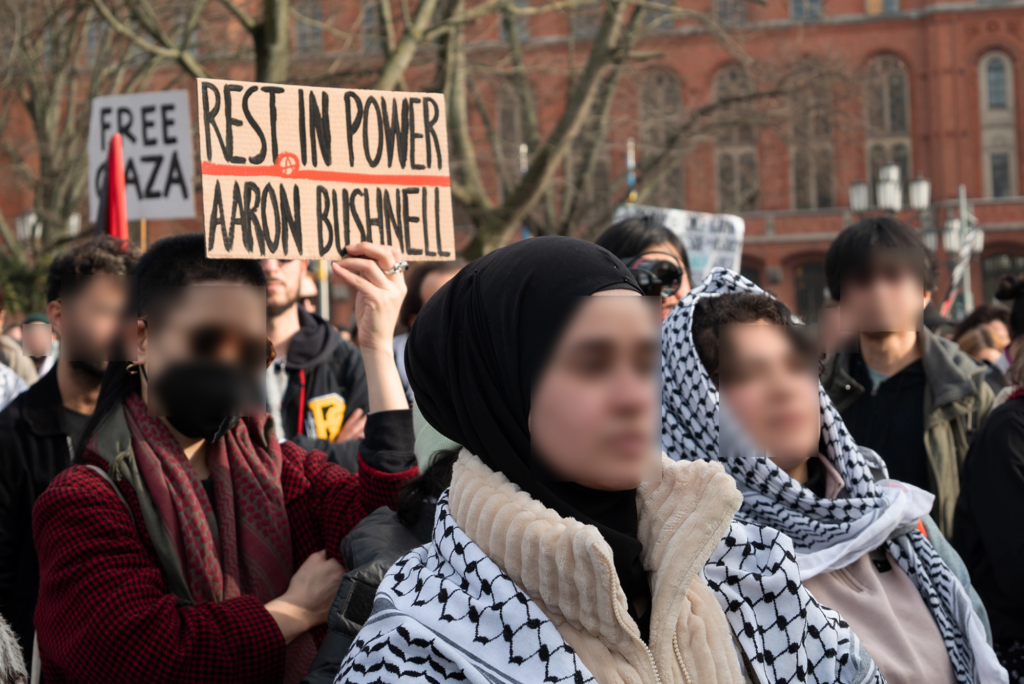
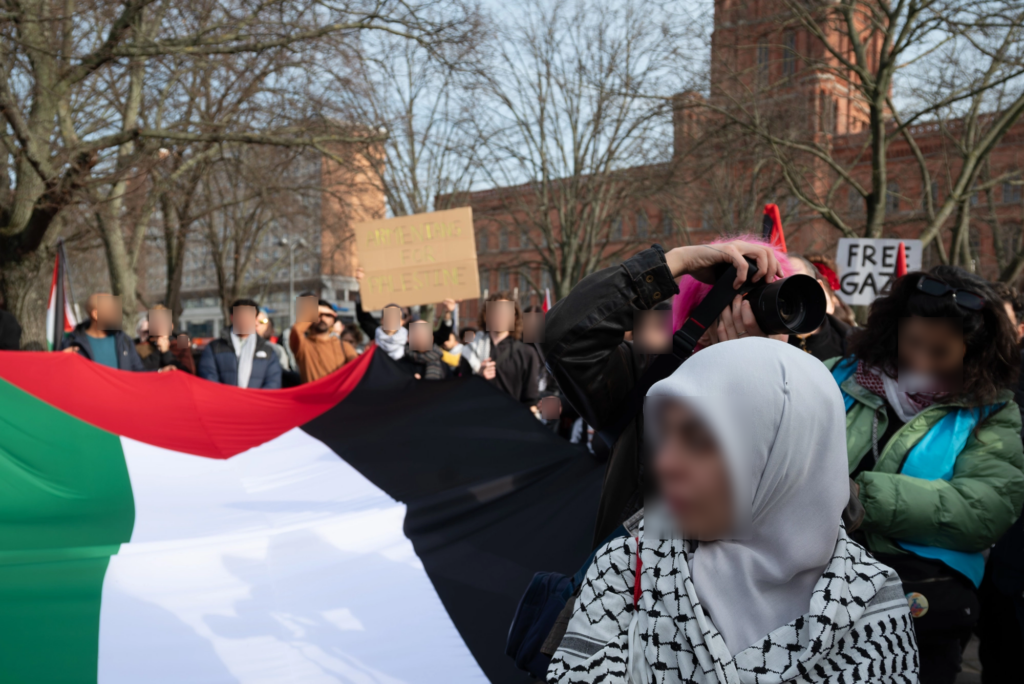
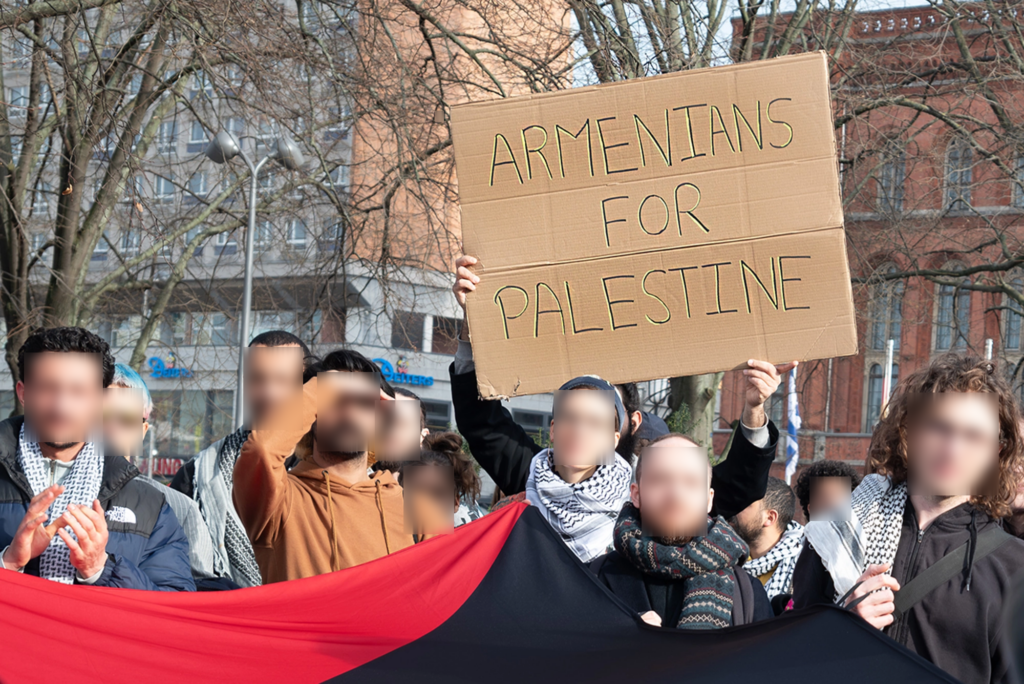
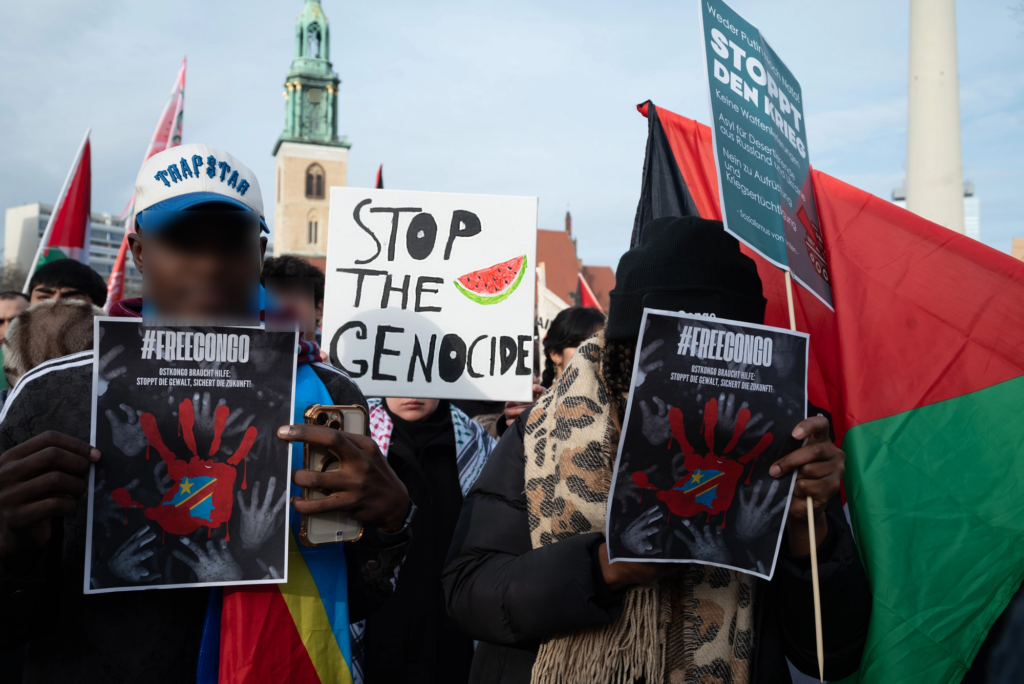
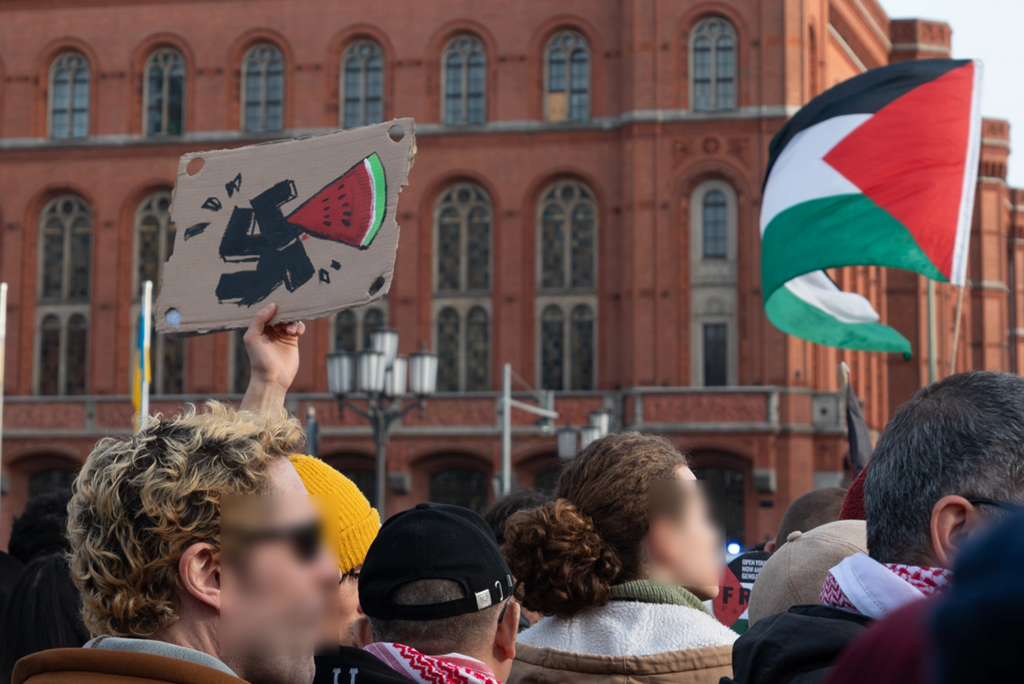
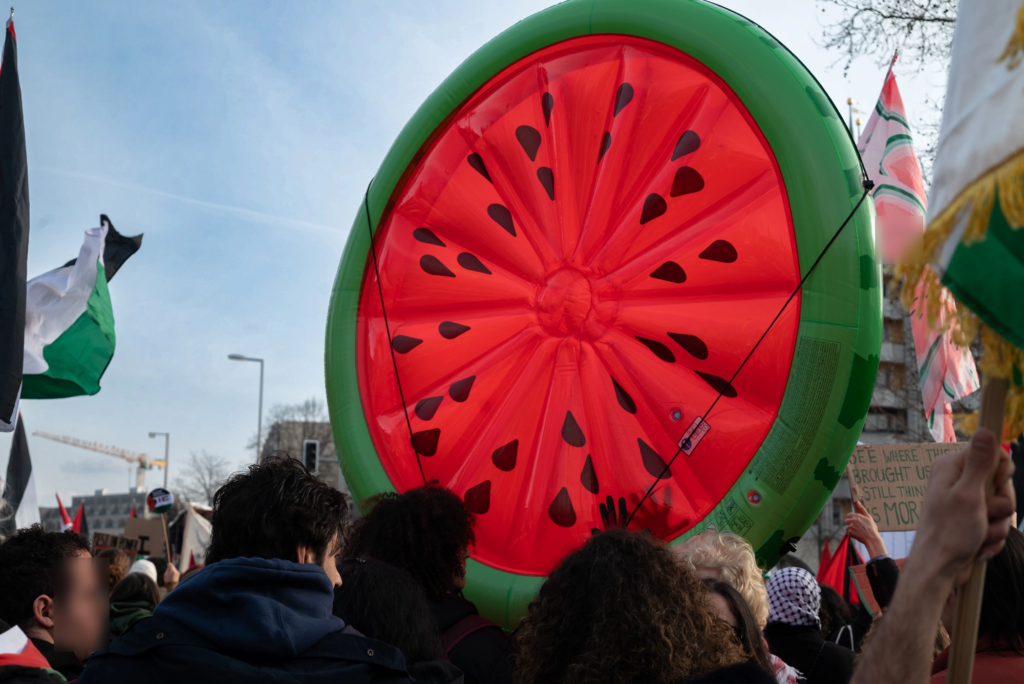
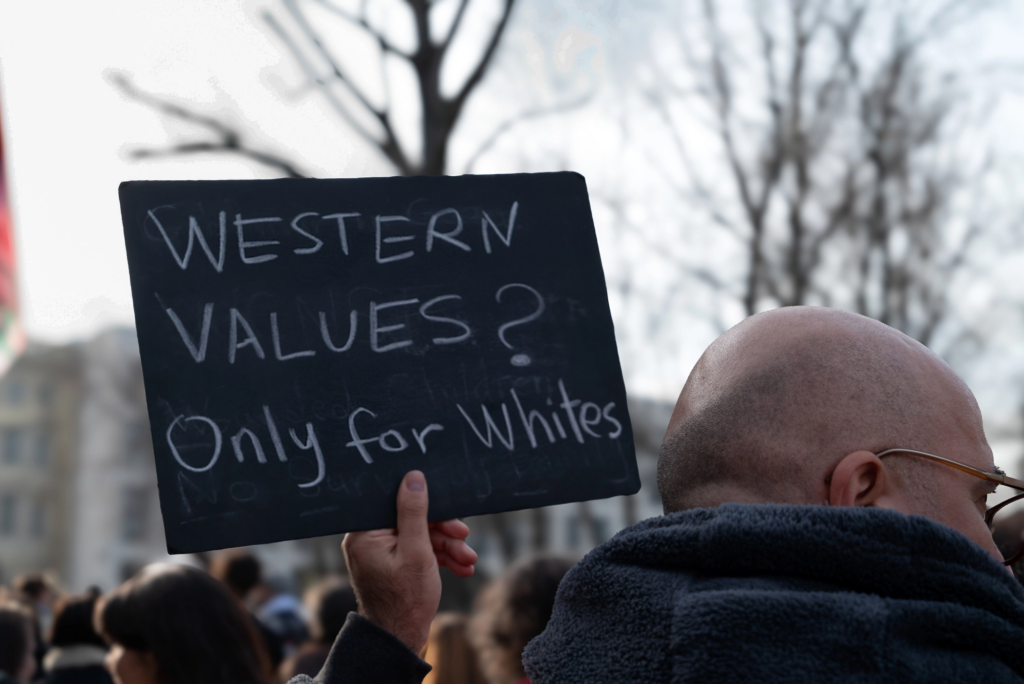
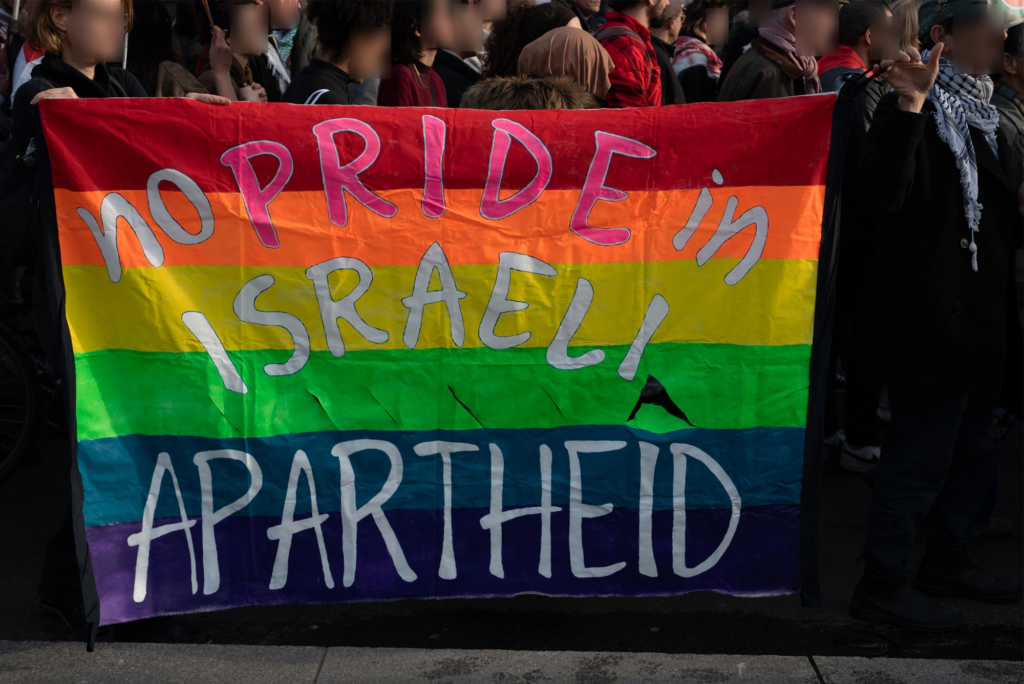
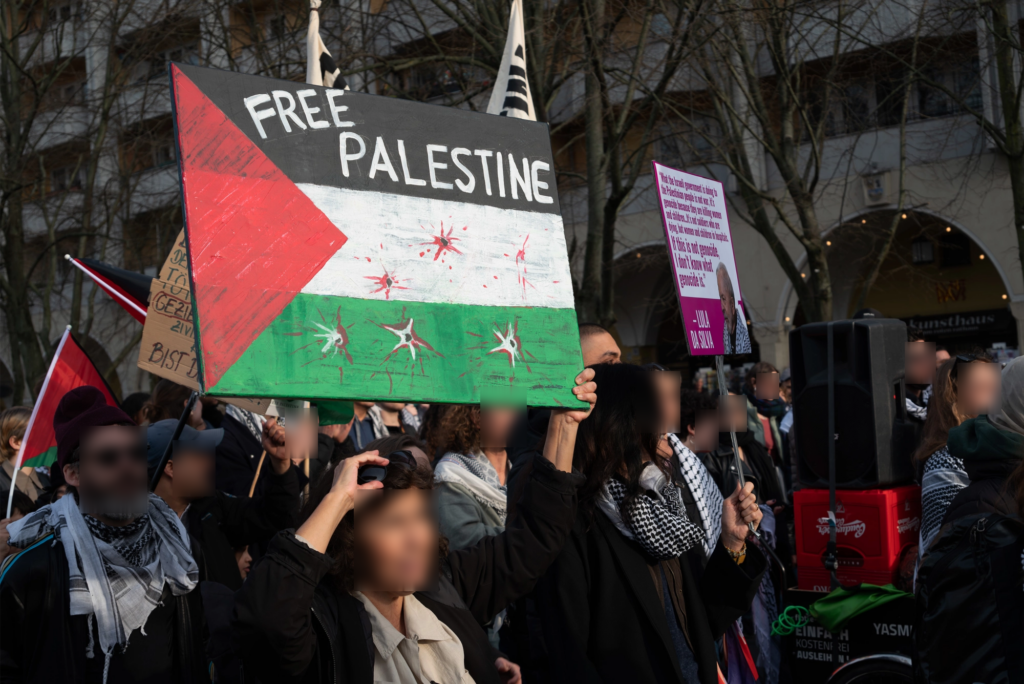
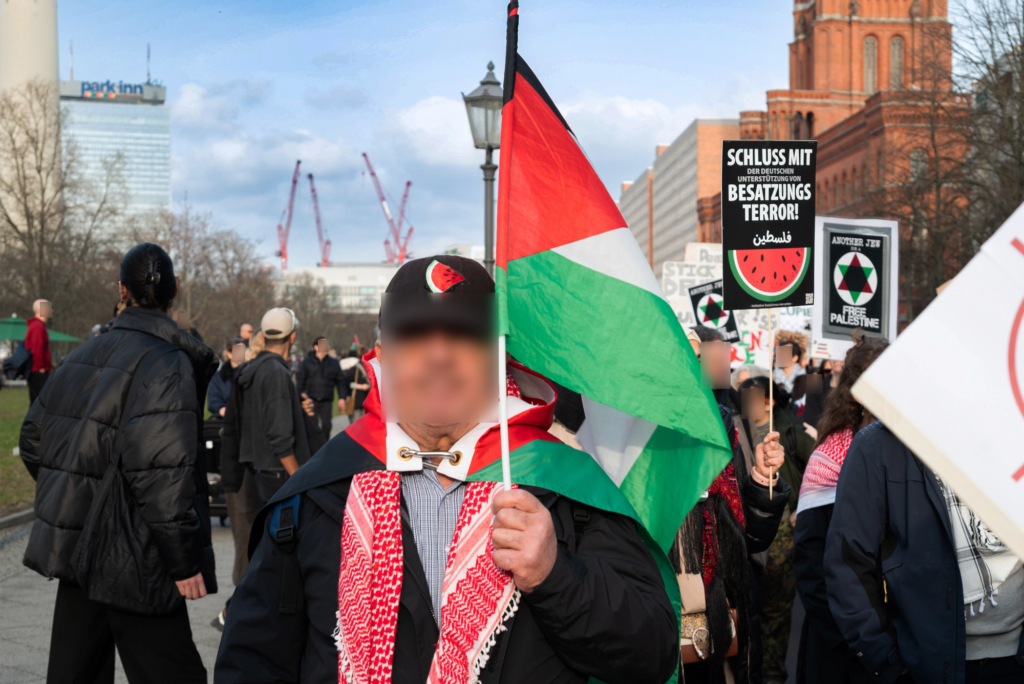
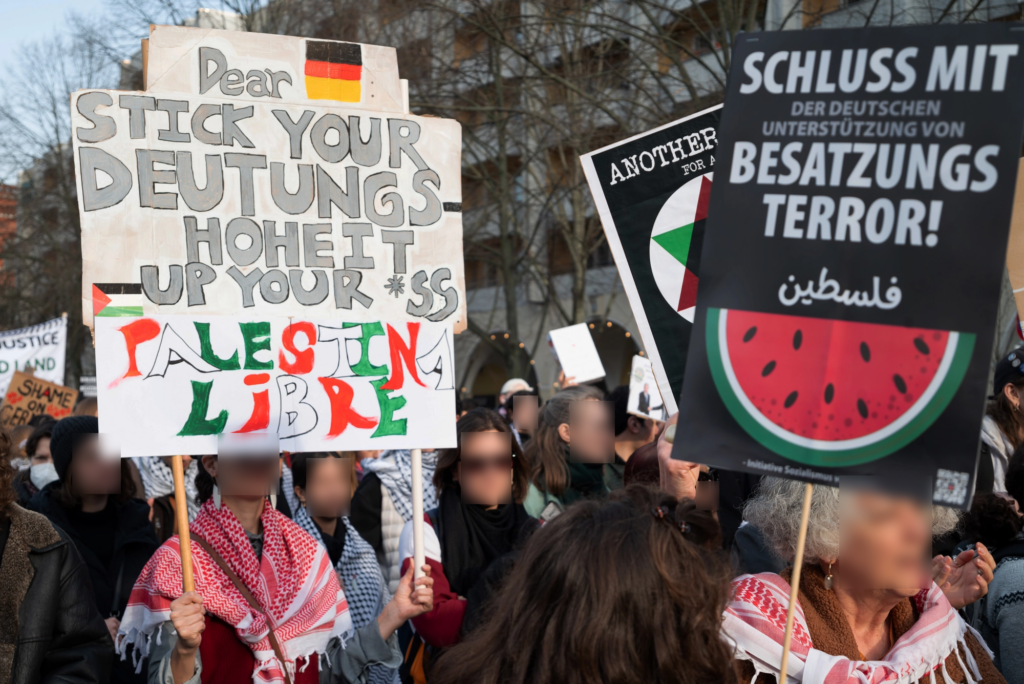

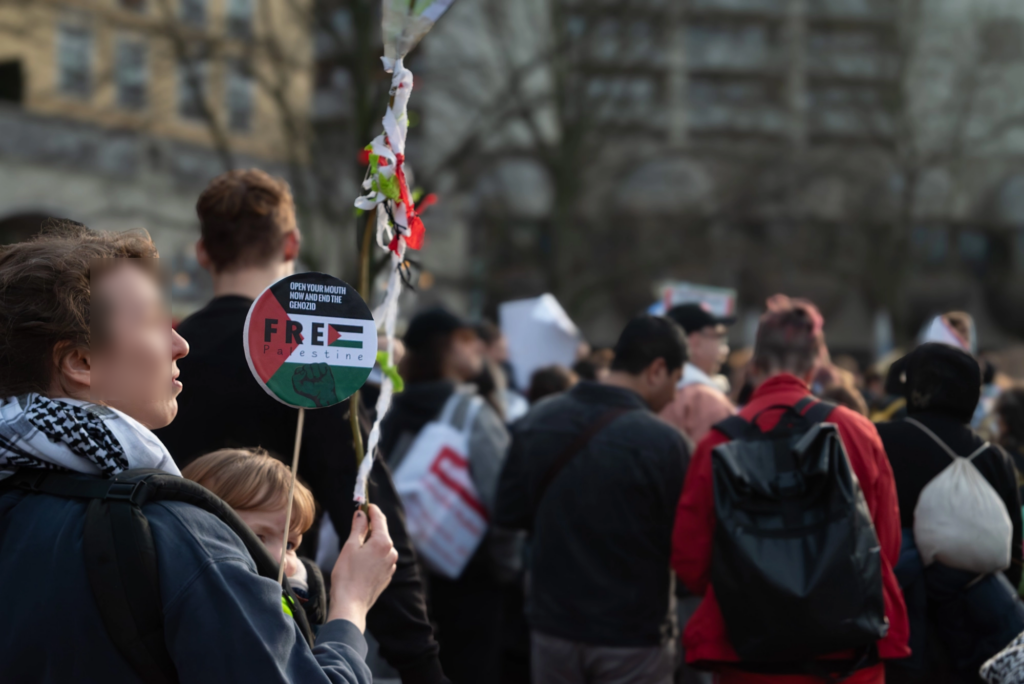
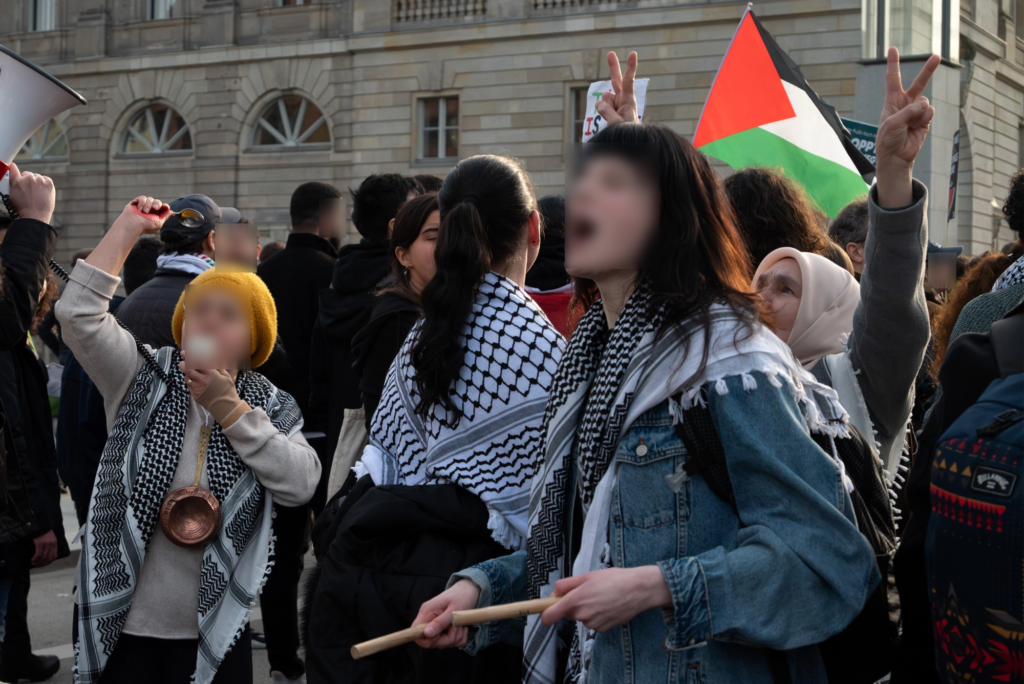
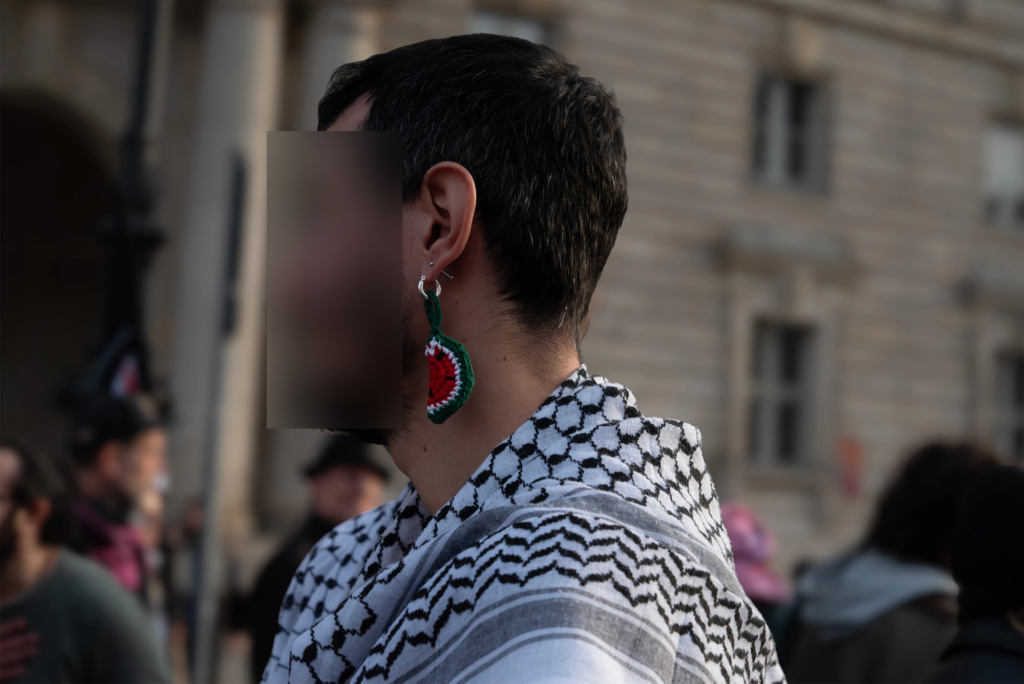
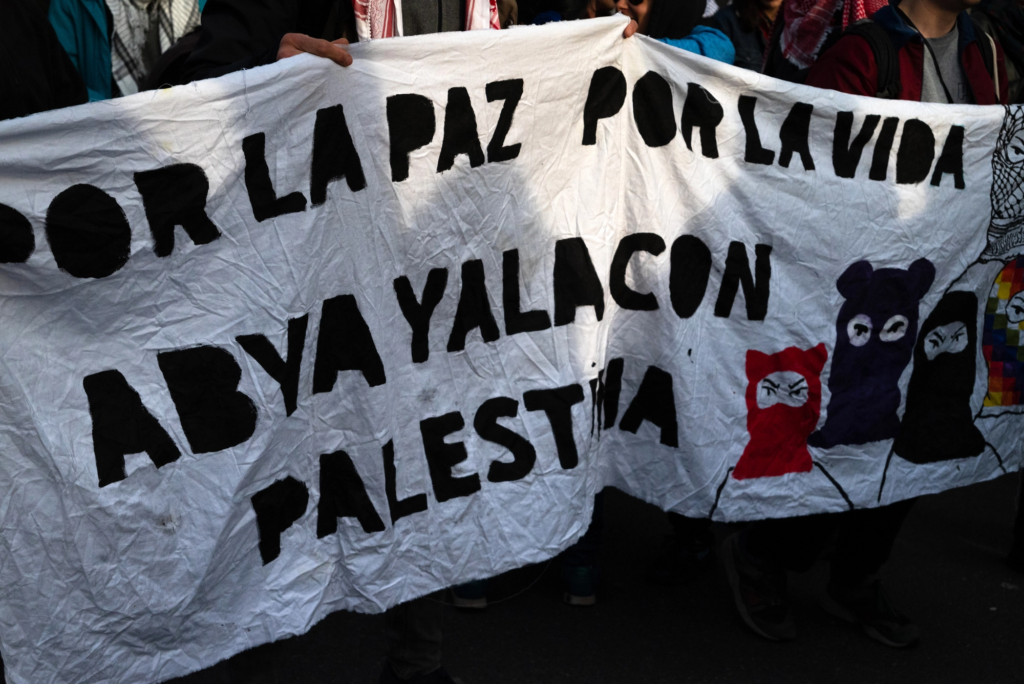
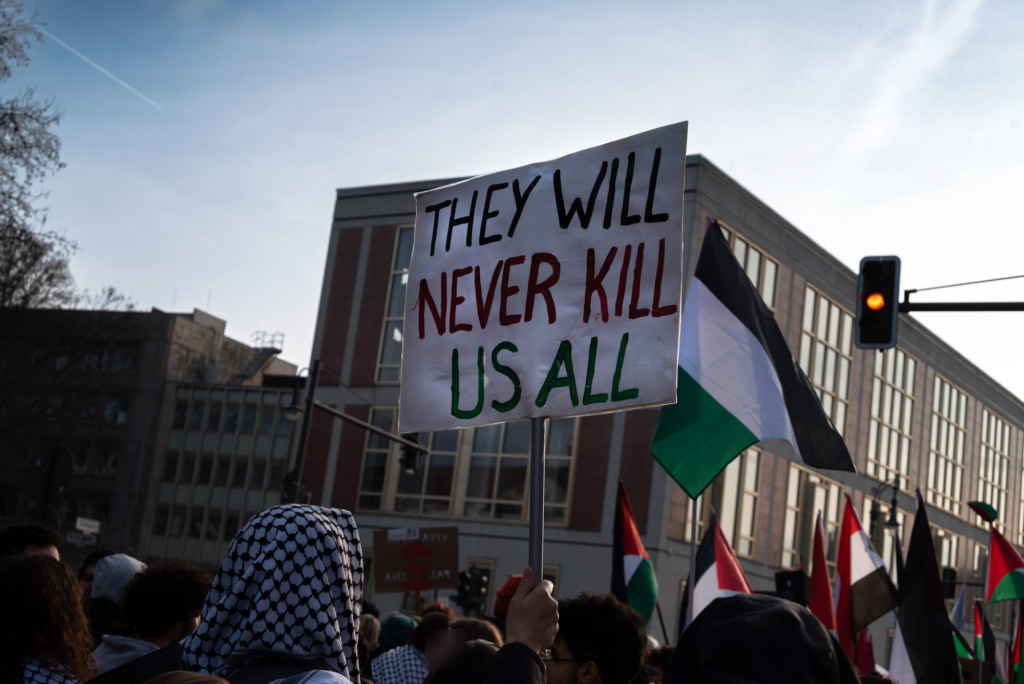
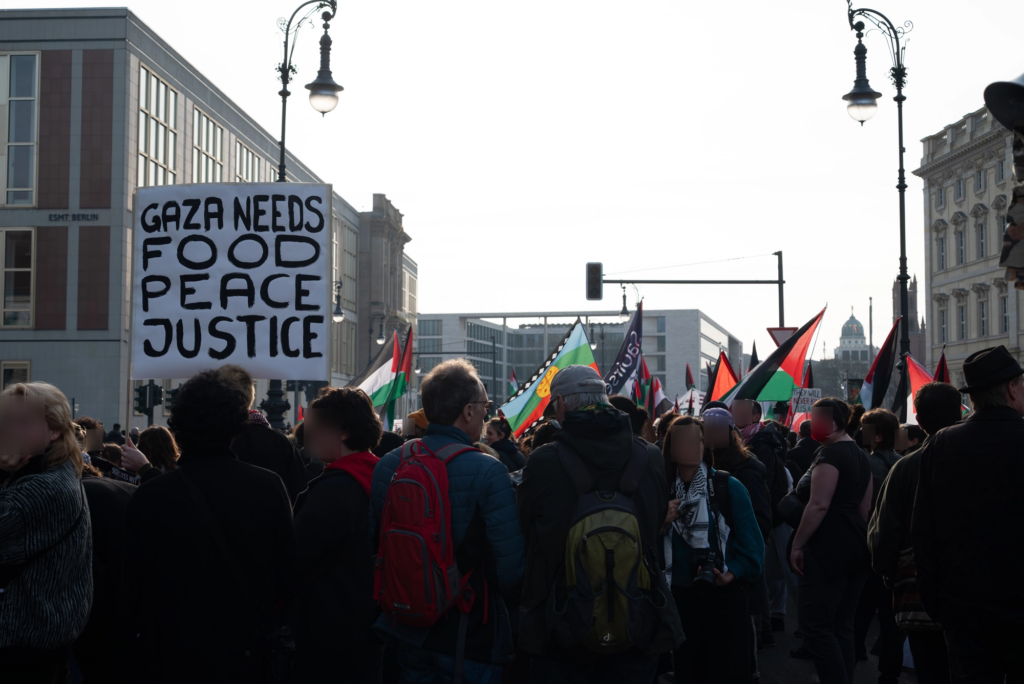
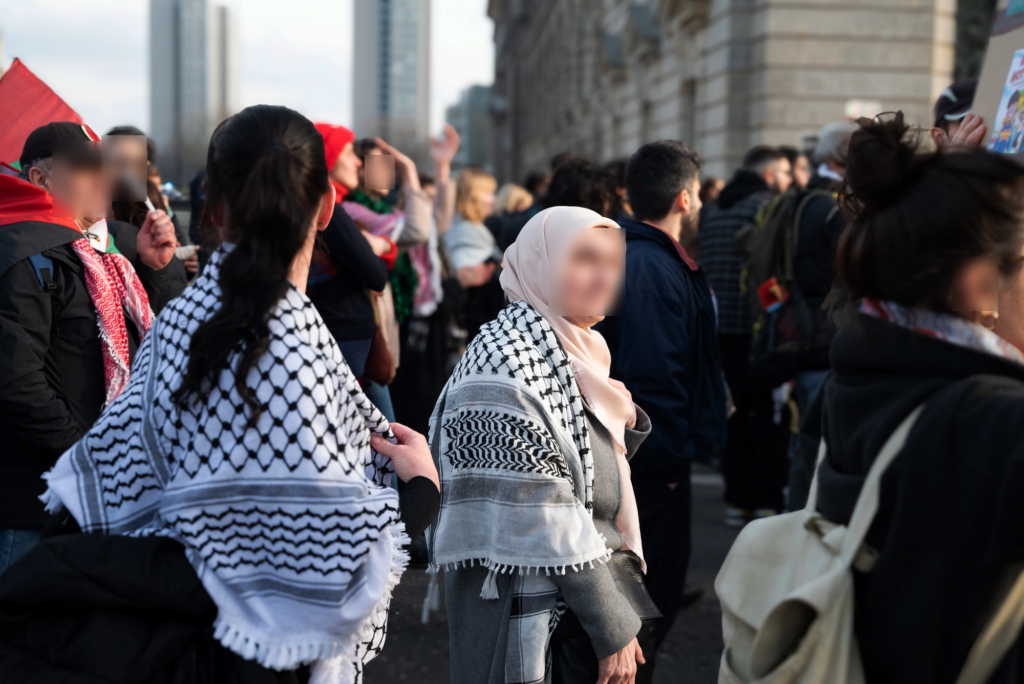
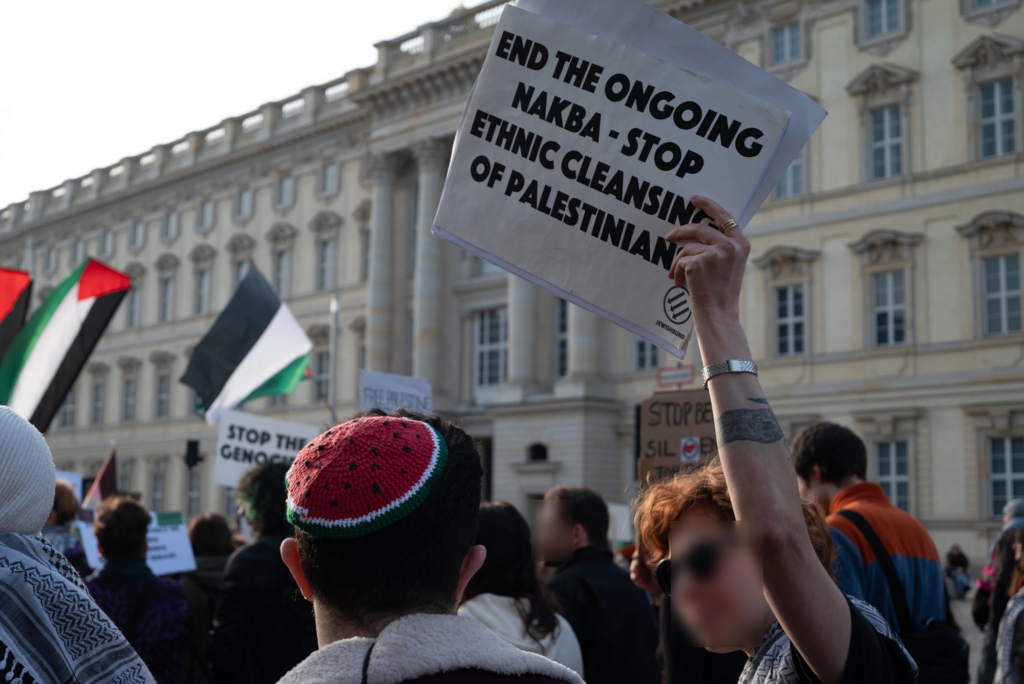
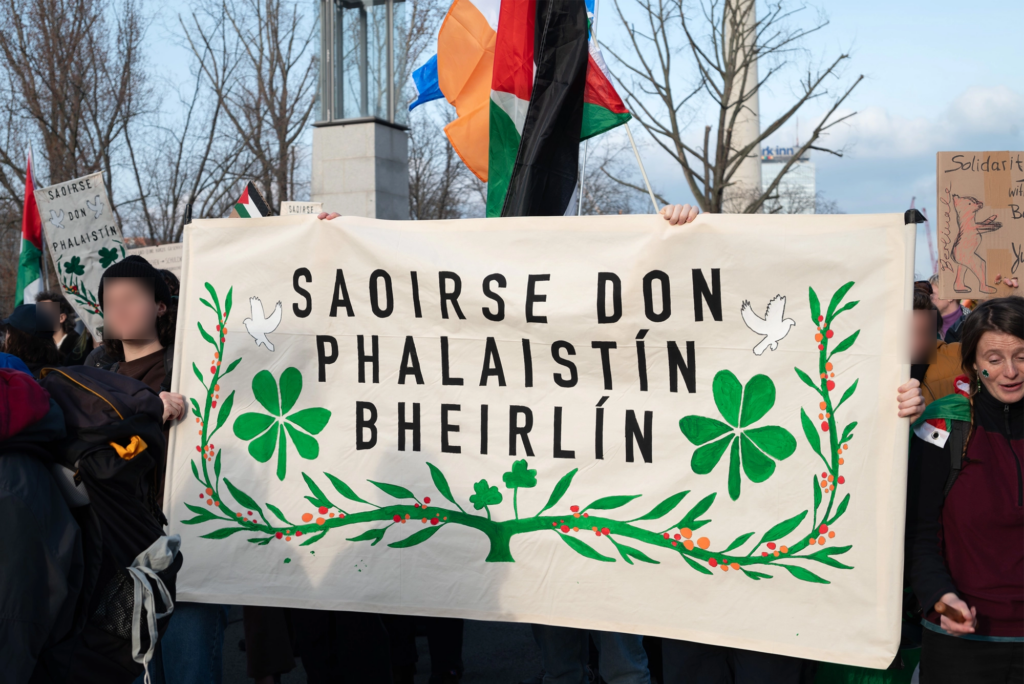
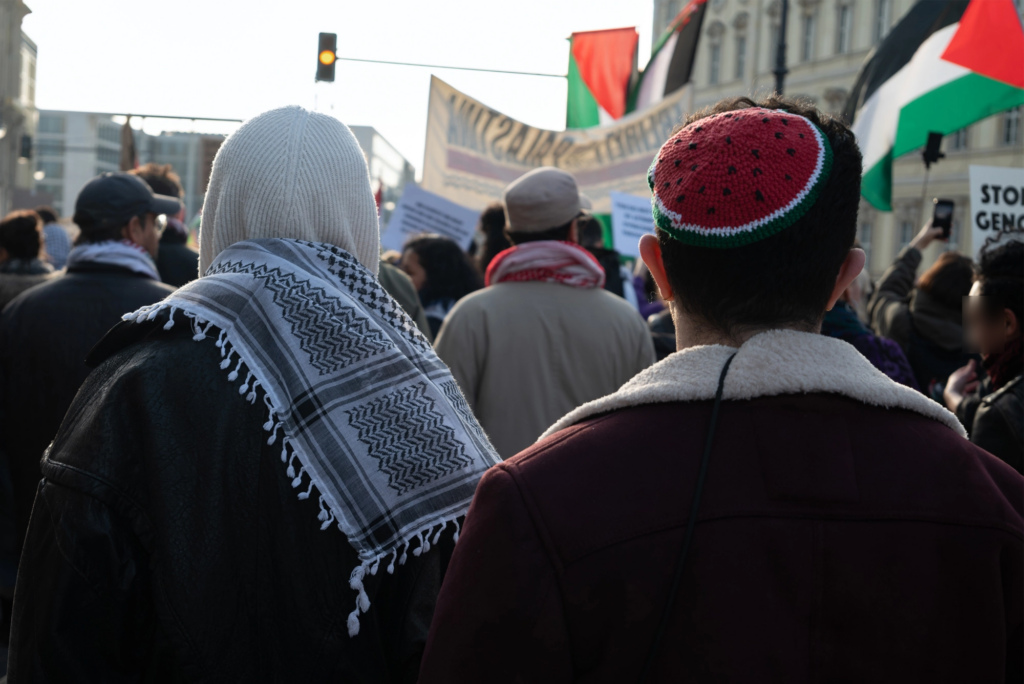
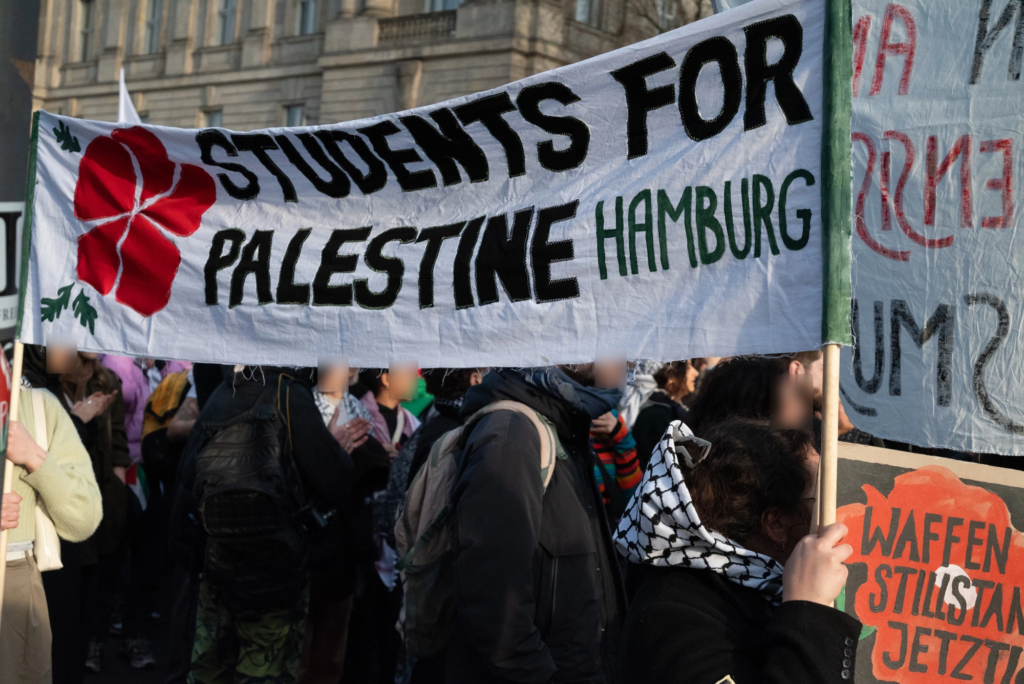
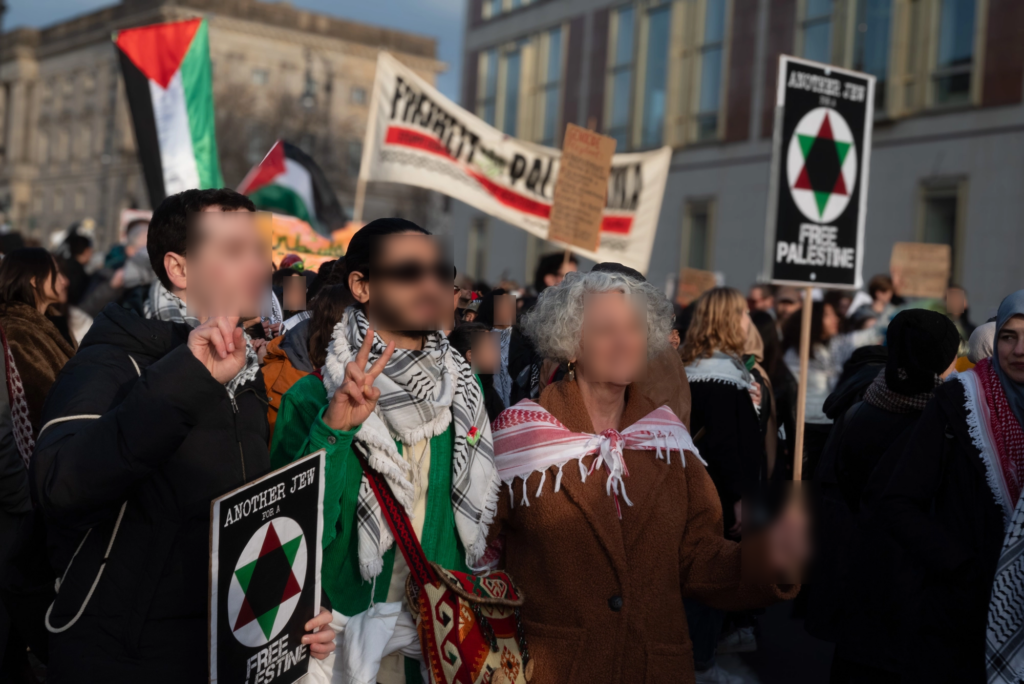
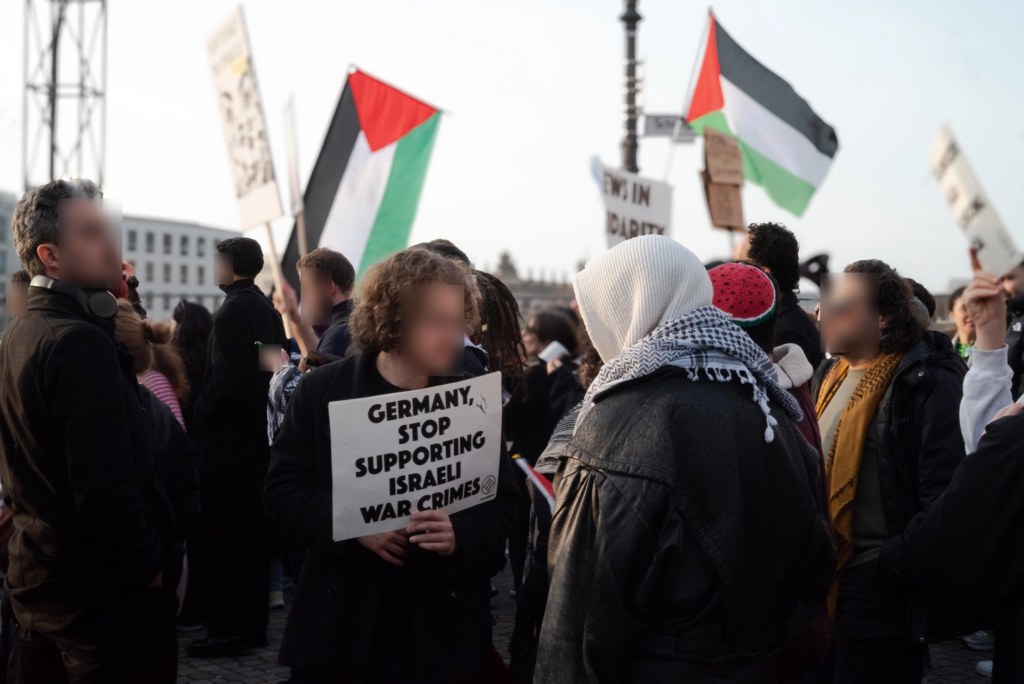
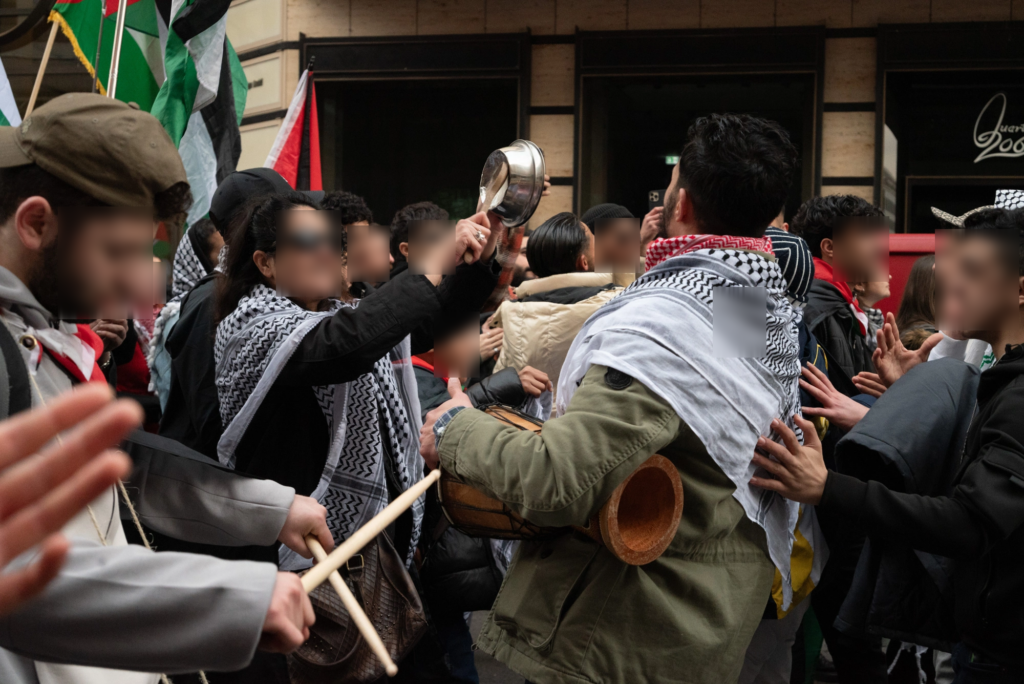
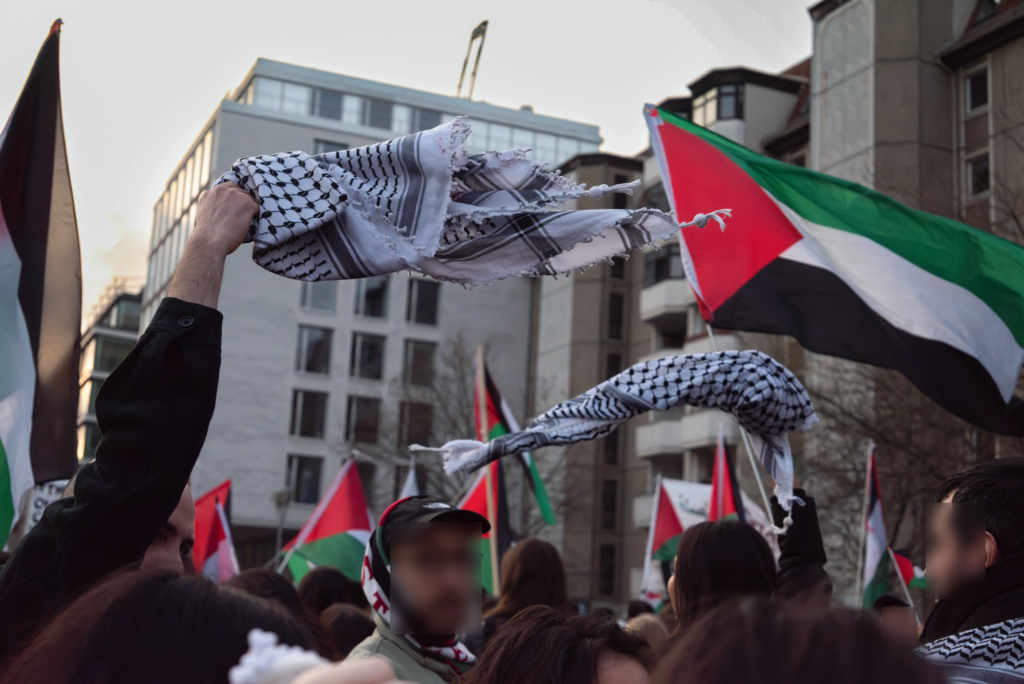
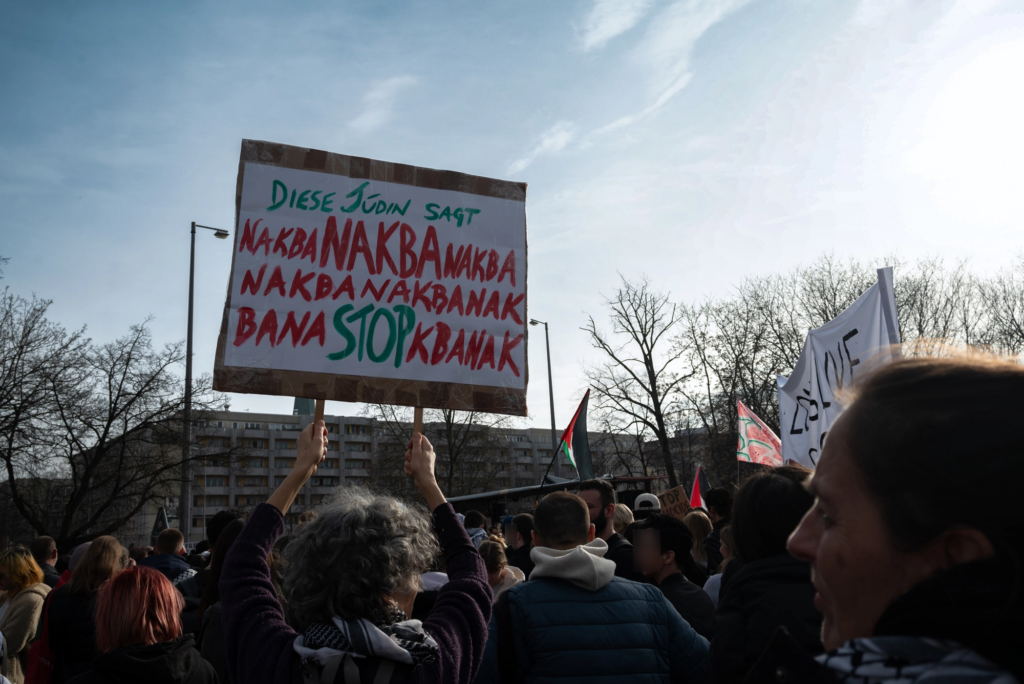
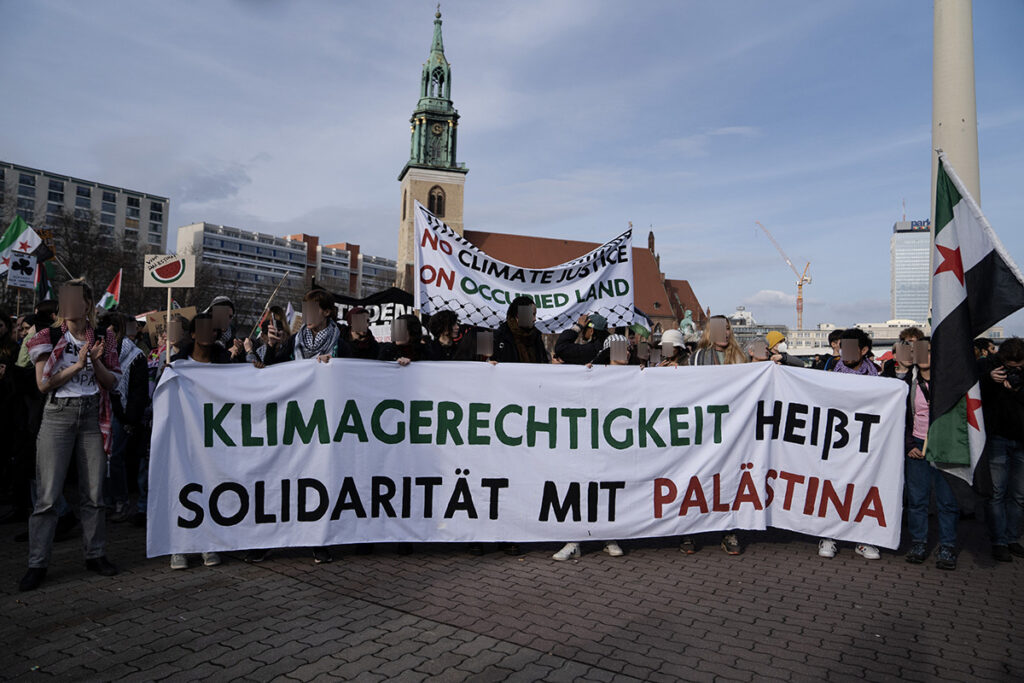
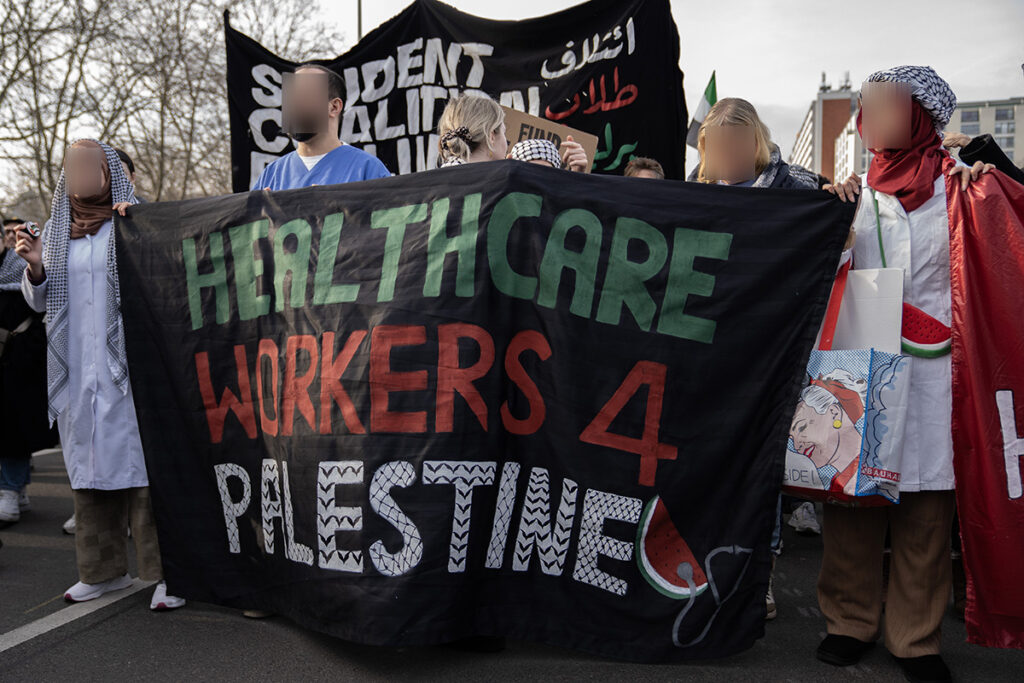
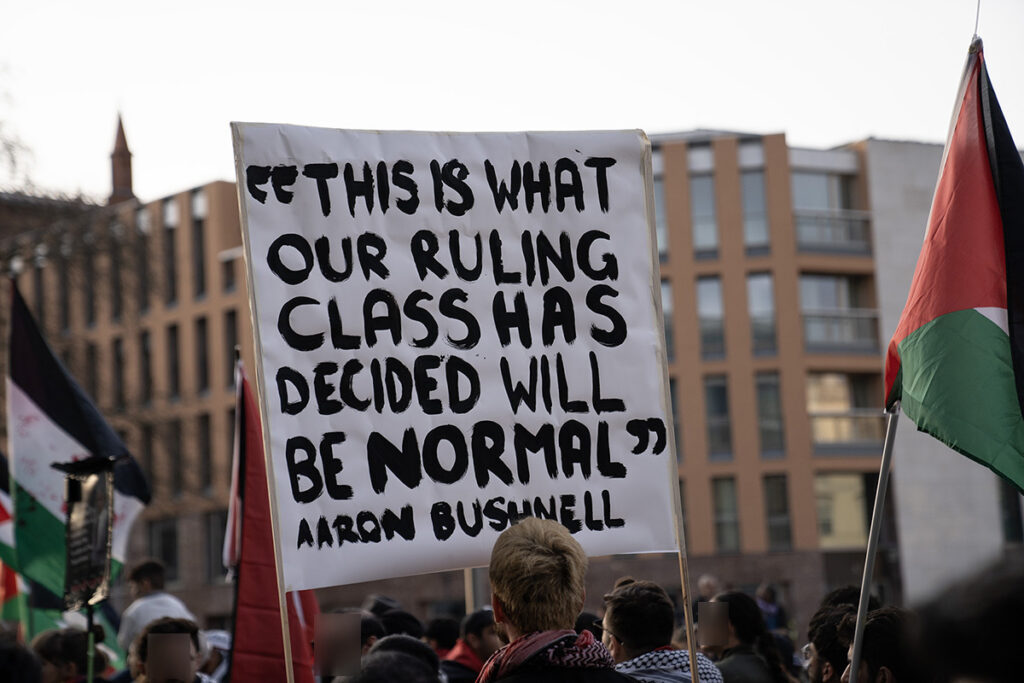
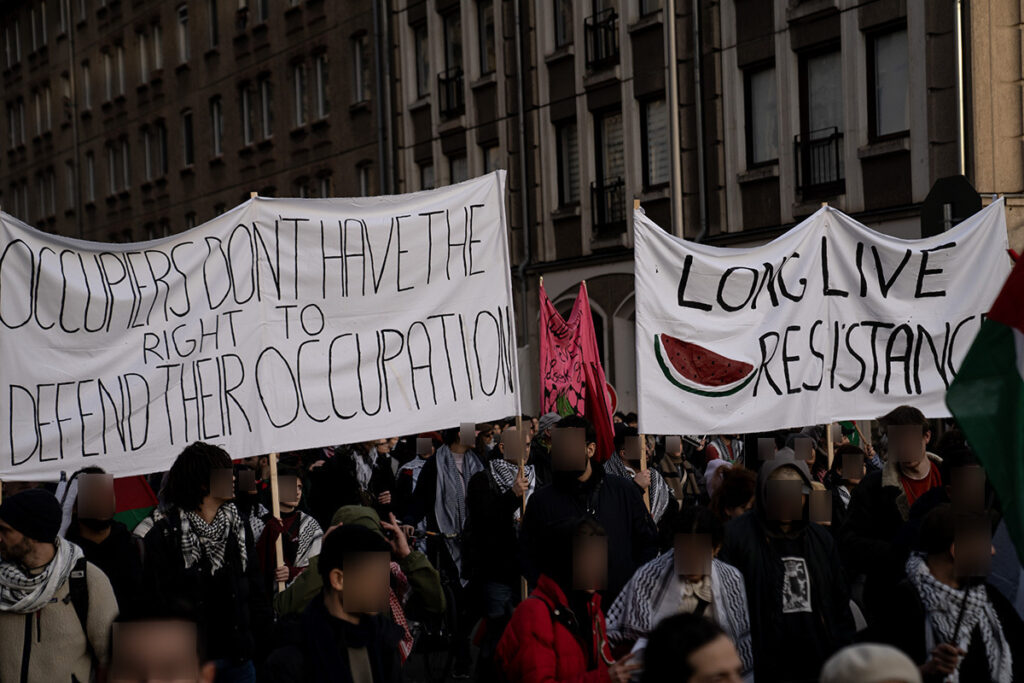
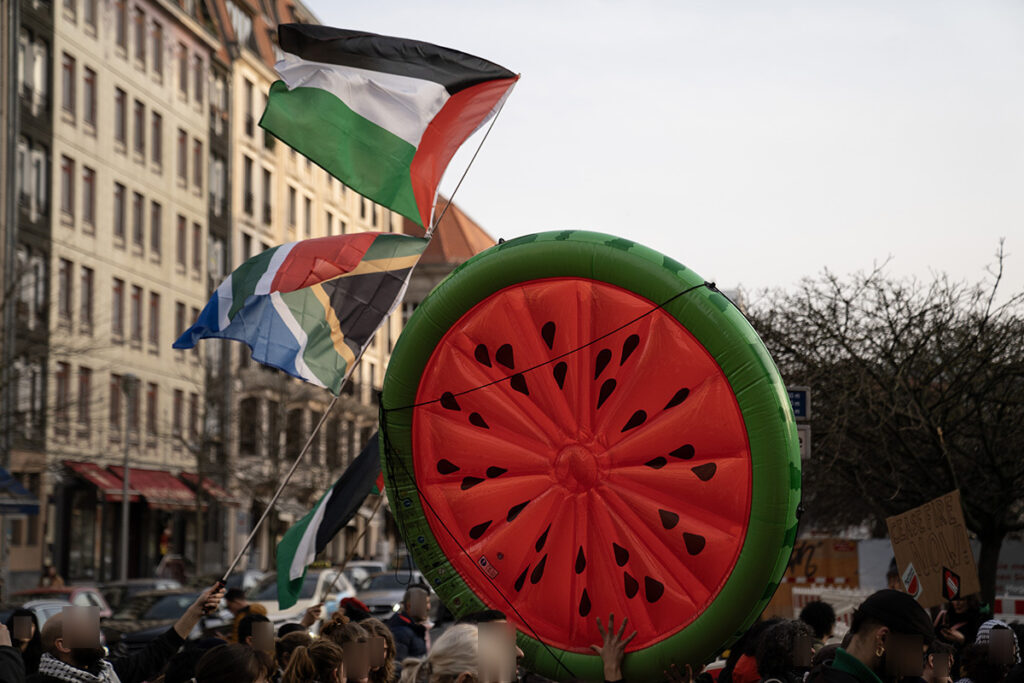
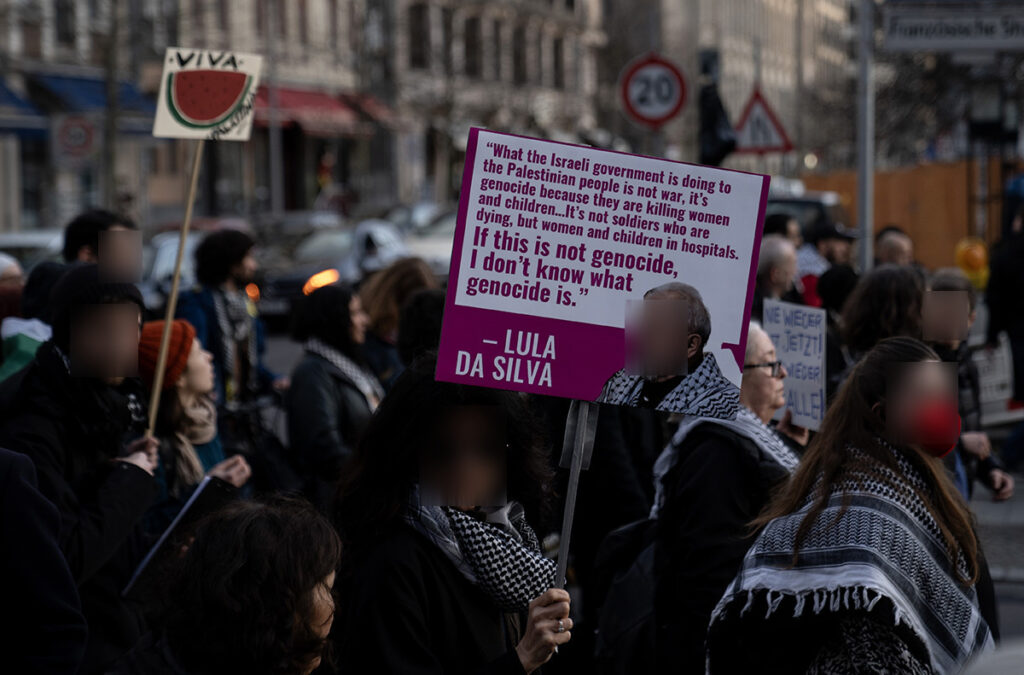
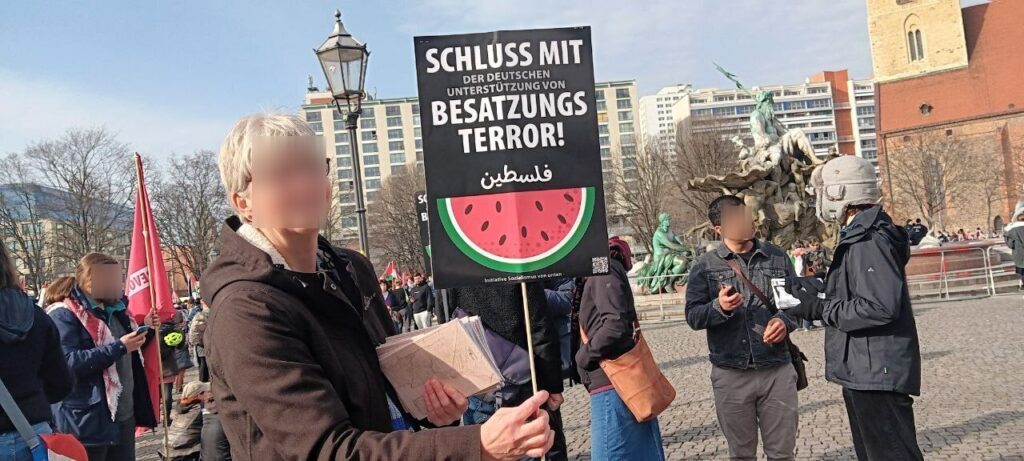


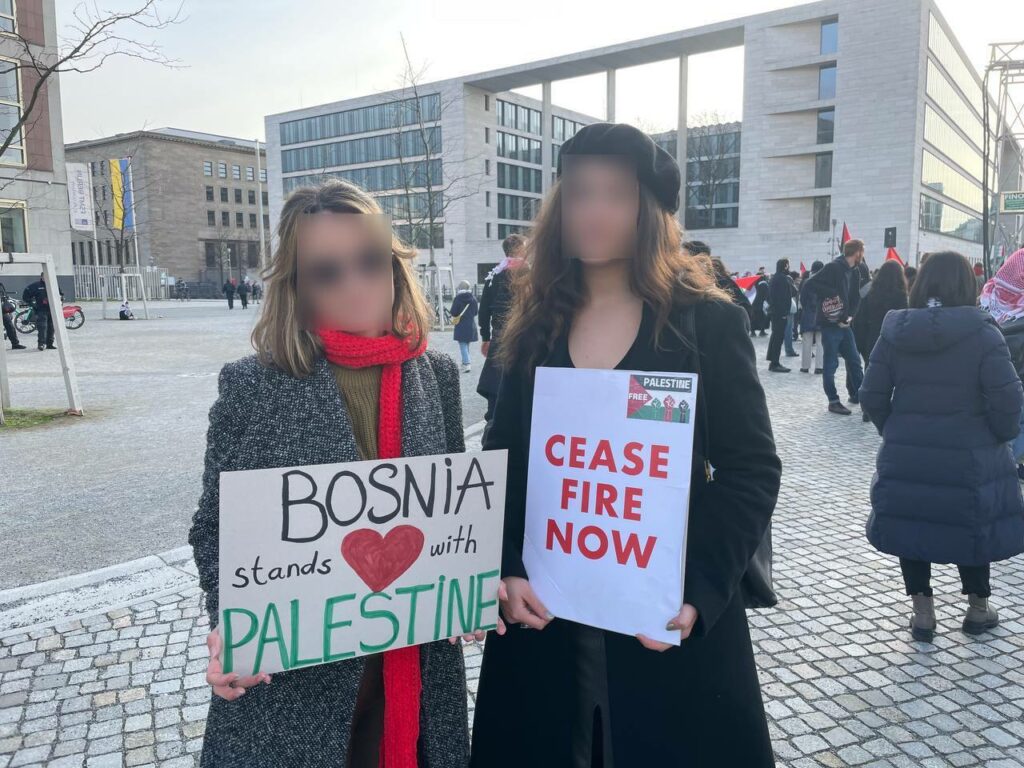
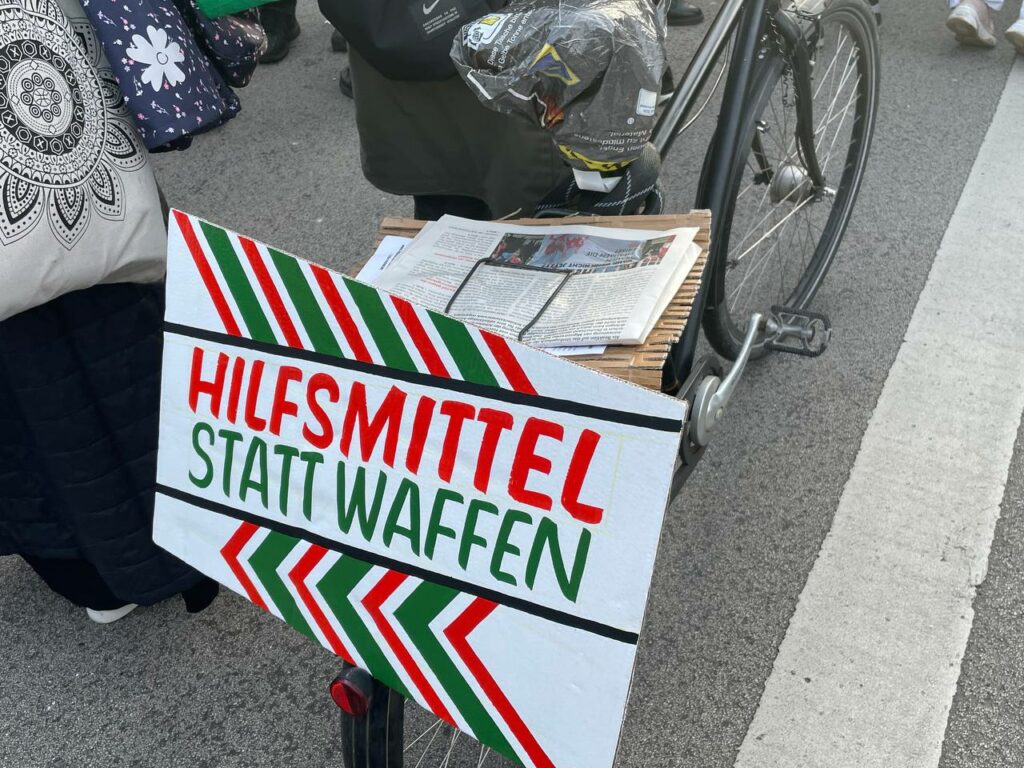

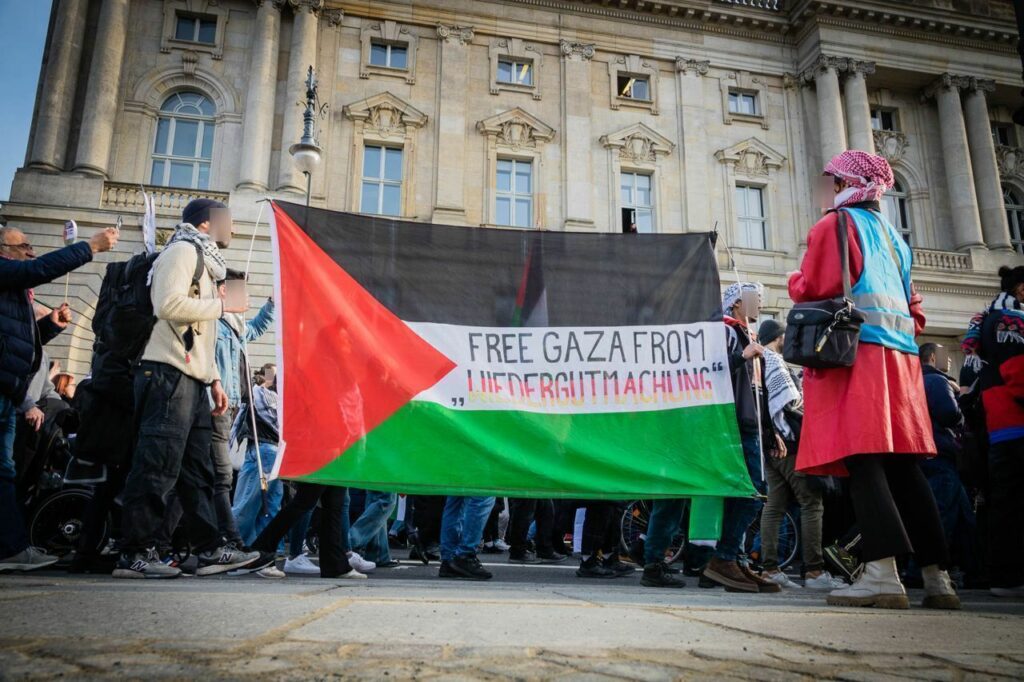

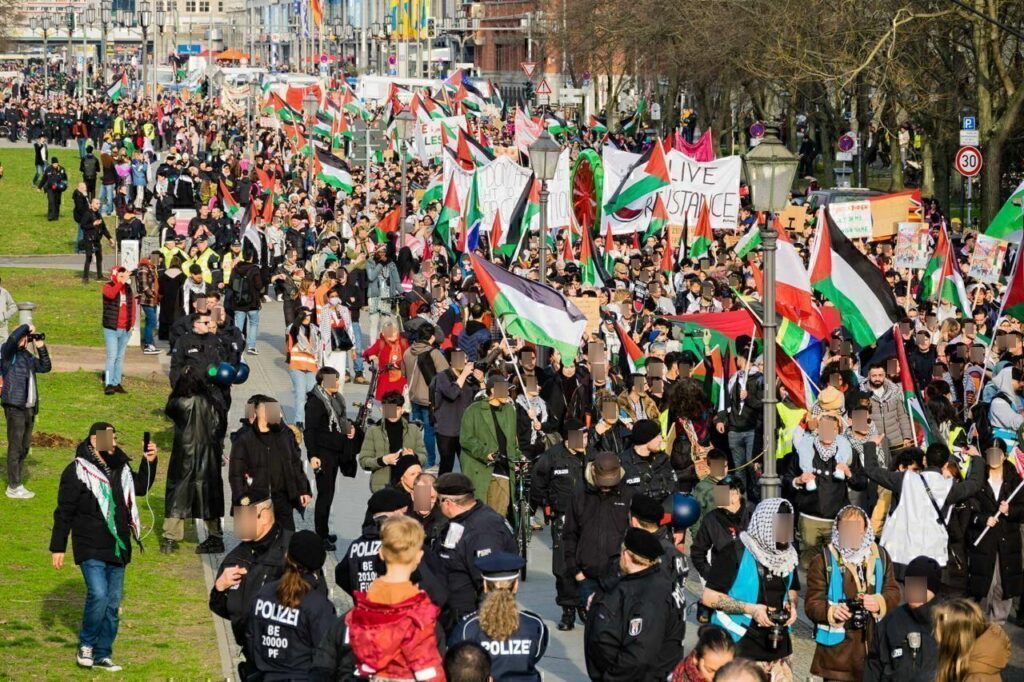
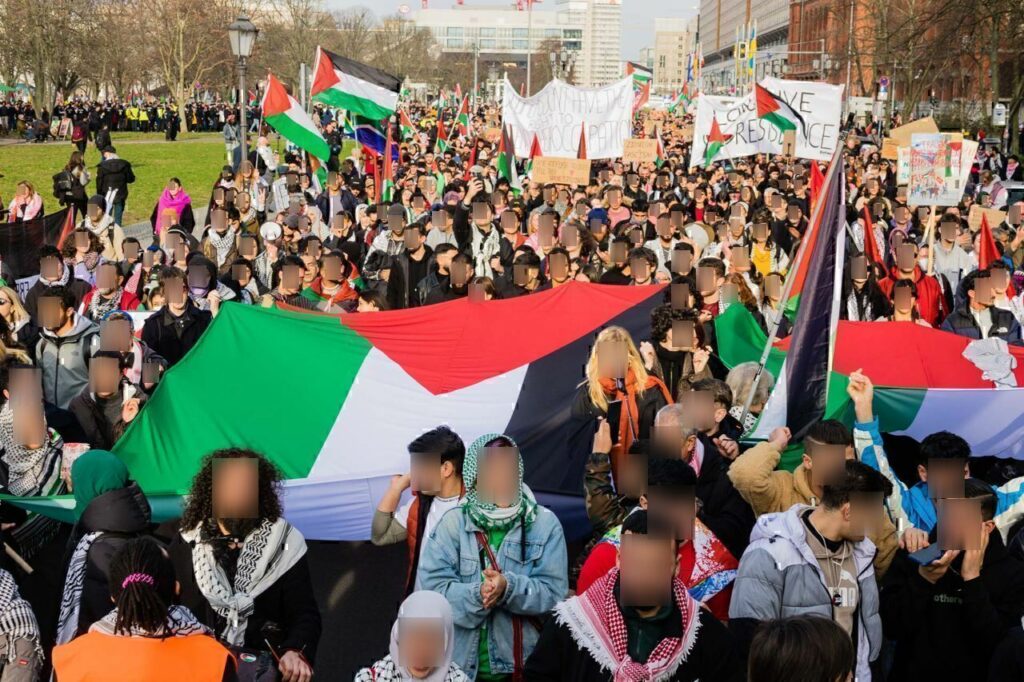
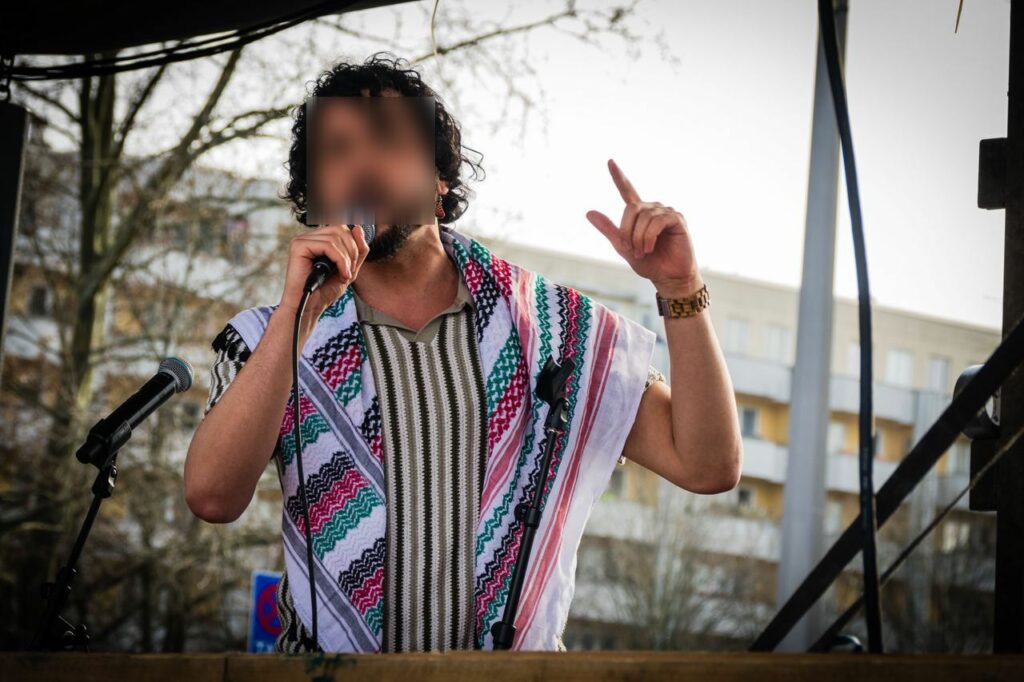
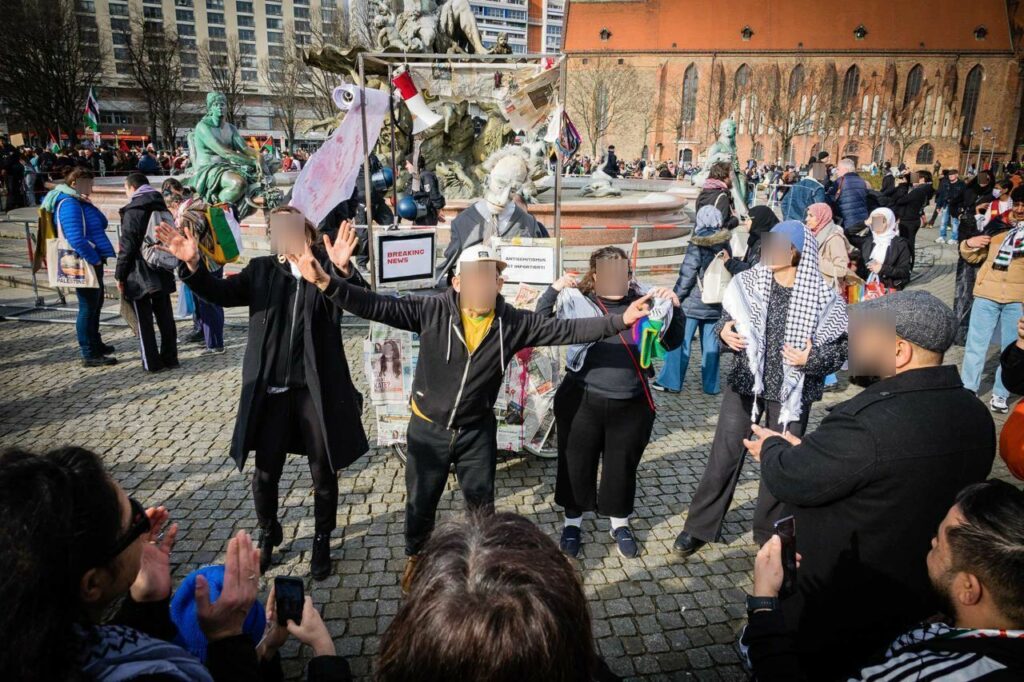


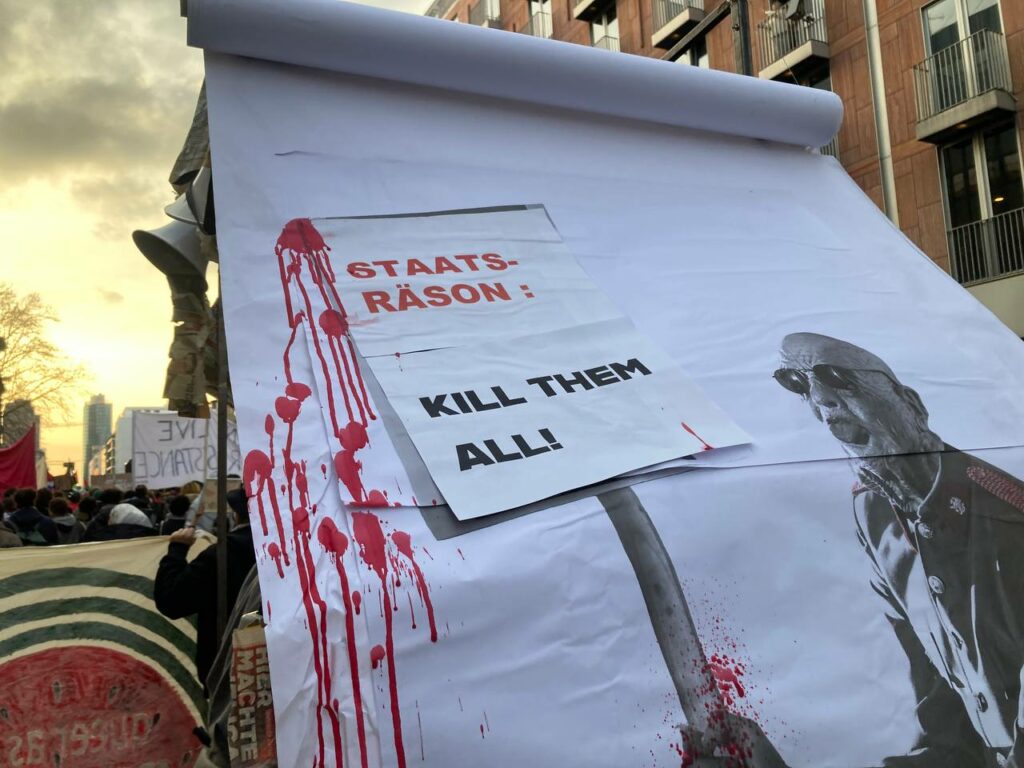
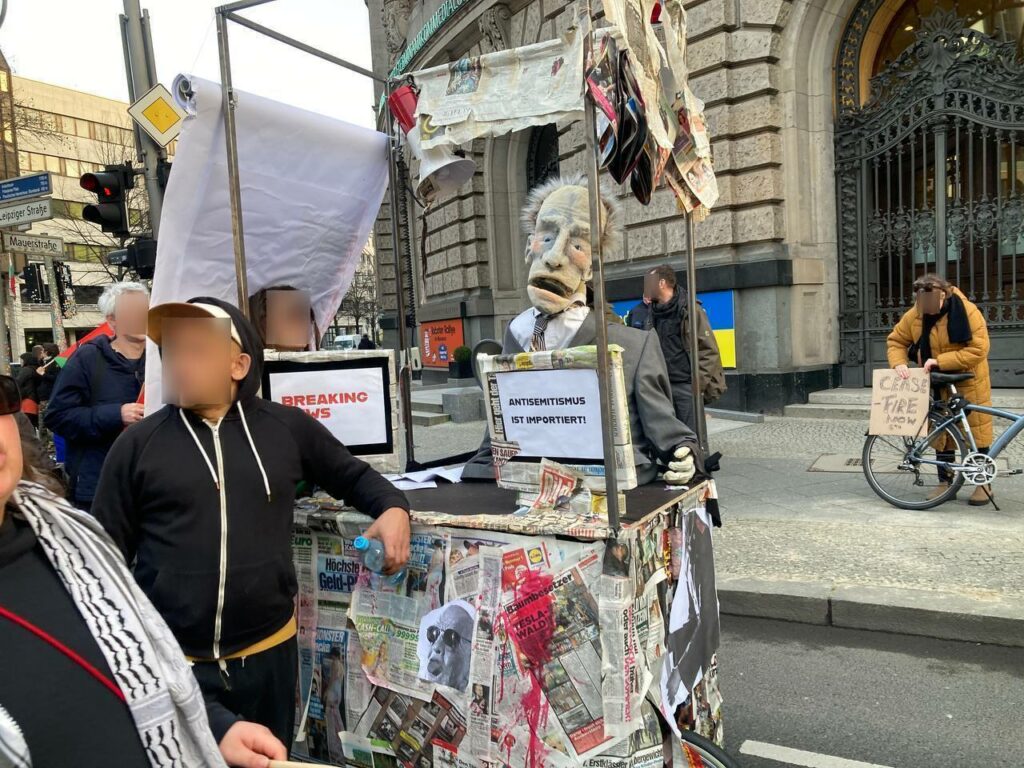
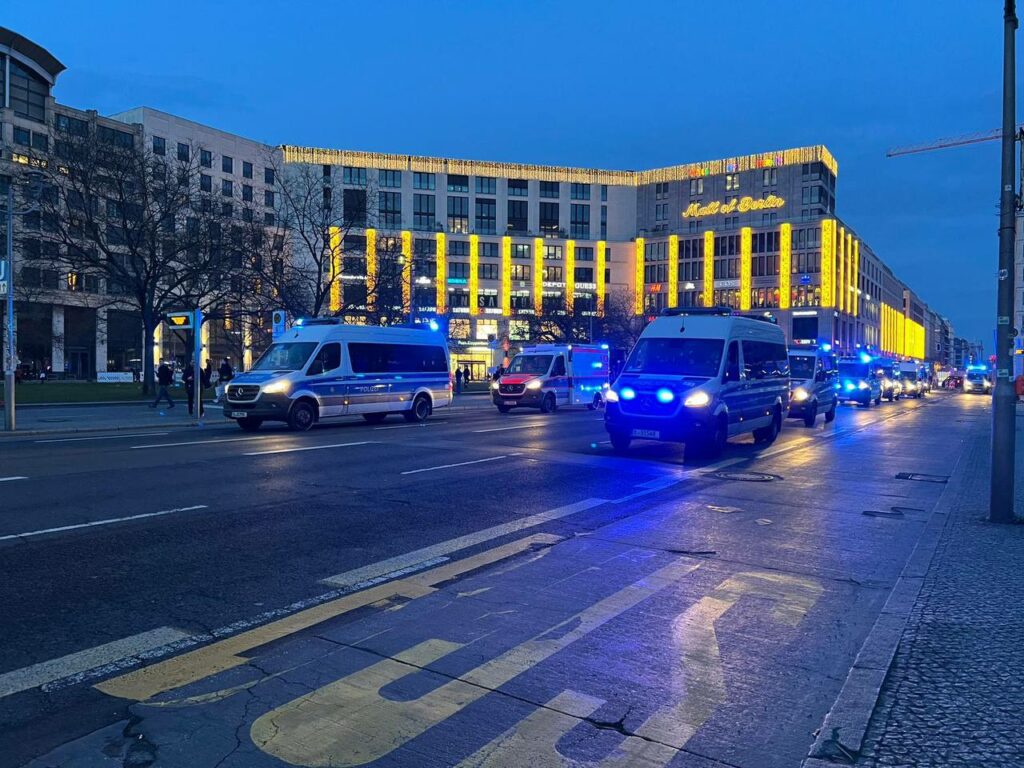

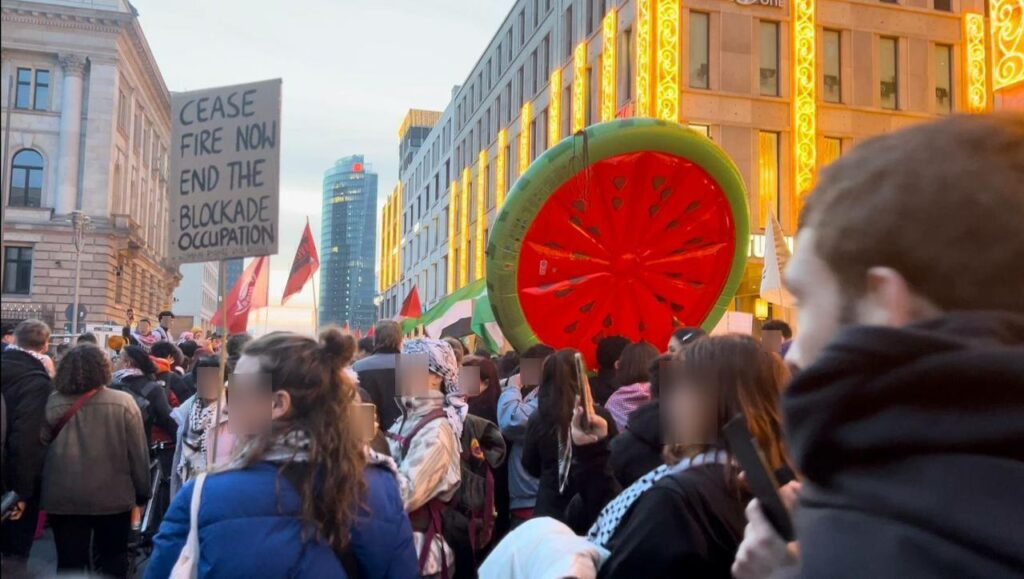
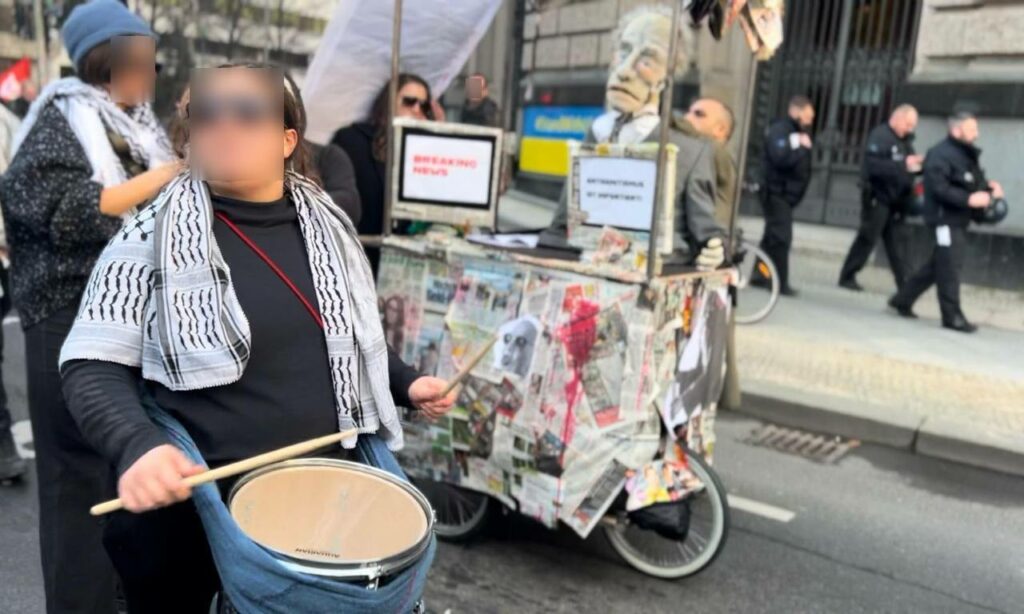
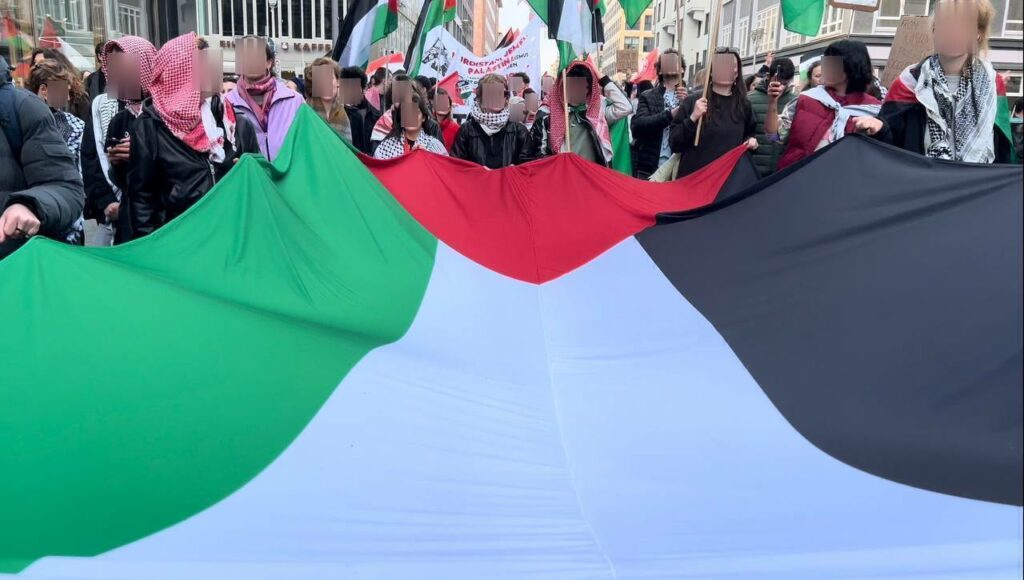
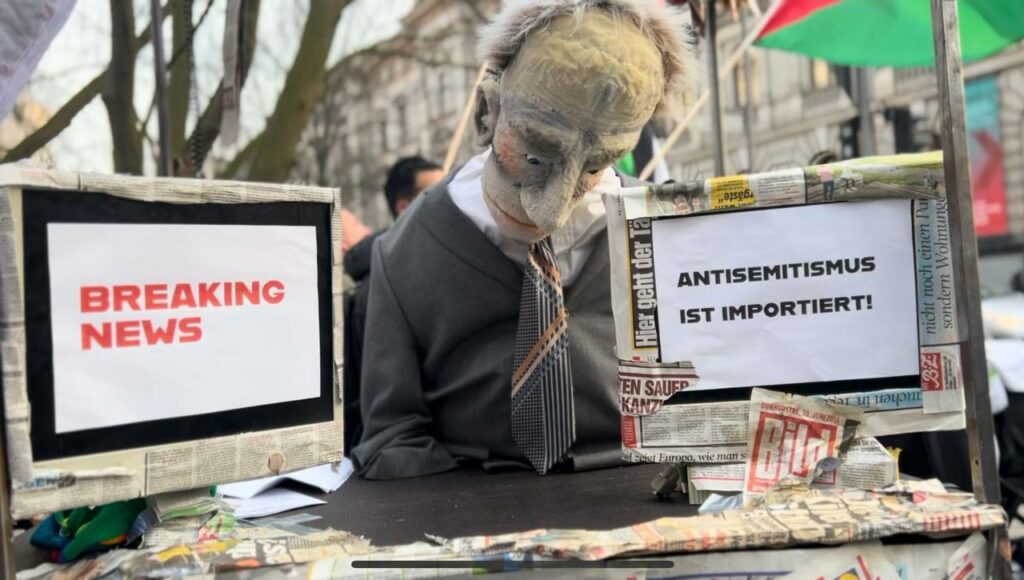
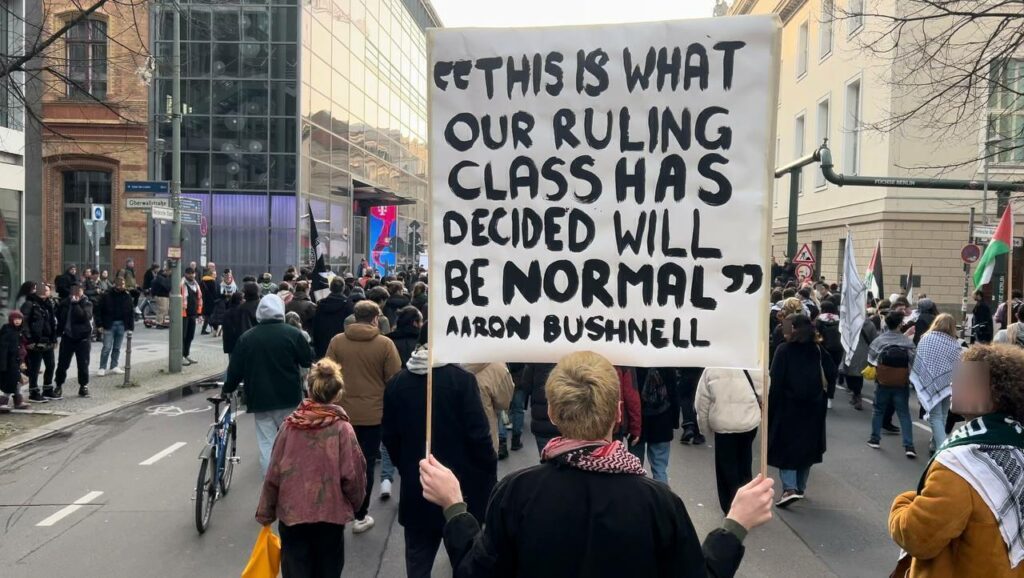
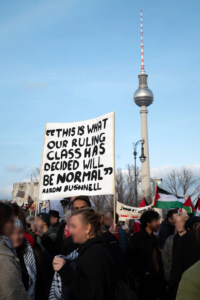
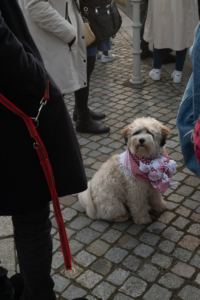
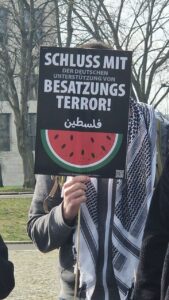
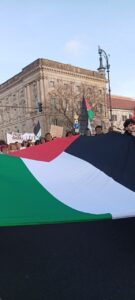

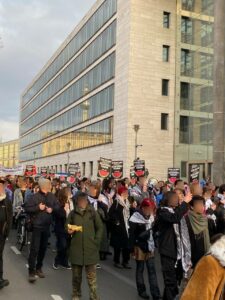



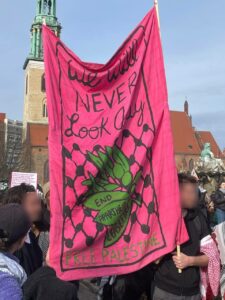
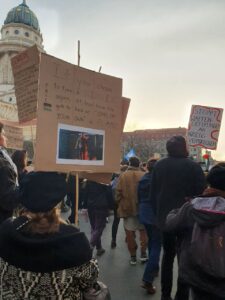

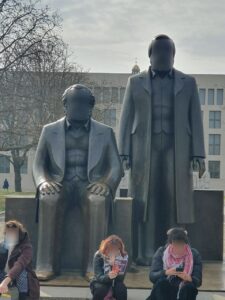

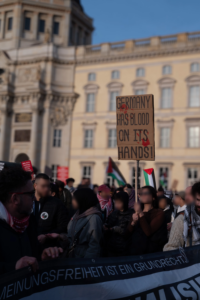
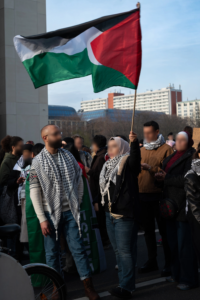
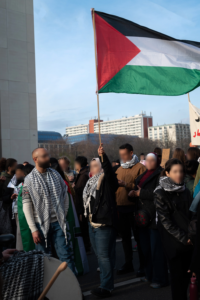
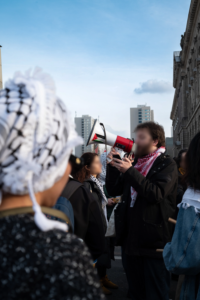
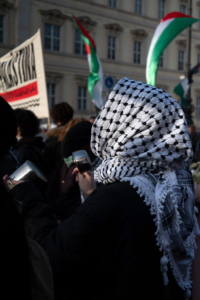
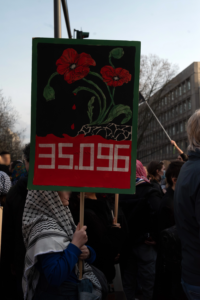
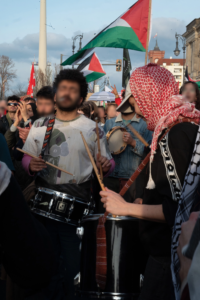
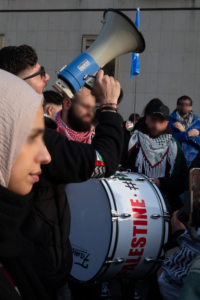
Videos
Photos and Videos: Cherry Adam, Phil Butland, Kerstin Cademartori Antony Hamilton, Ksenia Krauer-Pacheco, Craig Redmond, Angela Schildt, Sozialismus von Unten, Silke Stöckle, Martin Teicher, and Jav Toscano
Demonstration for Palestine. Neptunenbrunnen to Potsdamer Platz, Saturday 2nd March 2024
The Left Berlin
03/03/2024
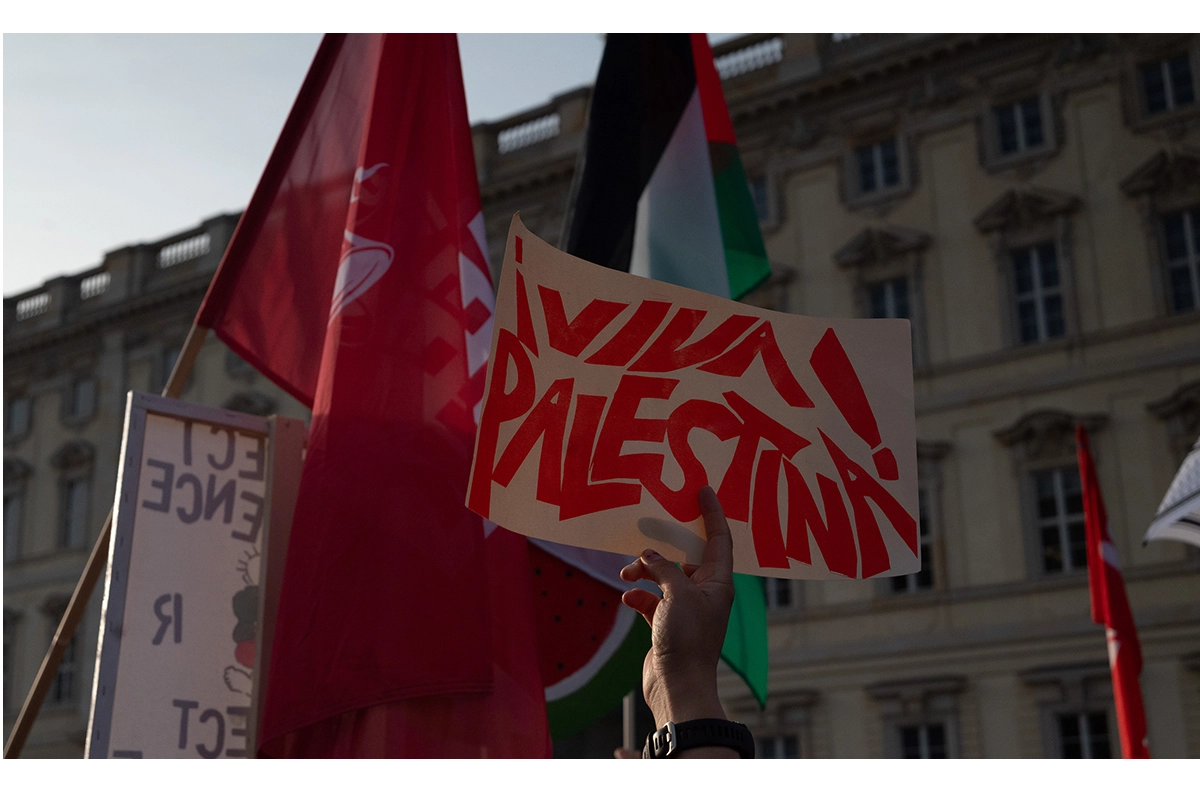















































































Videos
Photos and Videos: Cherry Adam, Phil Butland, Kerstin Cademartori Antony Hamilton, Ksenia Krauer-Pacheco, Craig Redmond, Angela Schildt, Sozialismus von Unten, Silke Stöckle, Martin Teicher, and Jav Toscano
The seventh installment in our series of photographs and cartoons about Berlin and Palestine.
The Left Berlin
02/03/2024
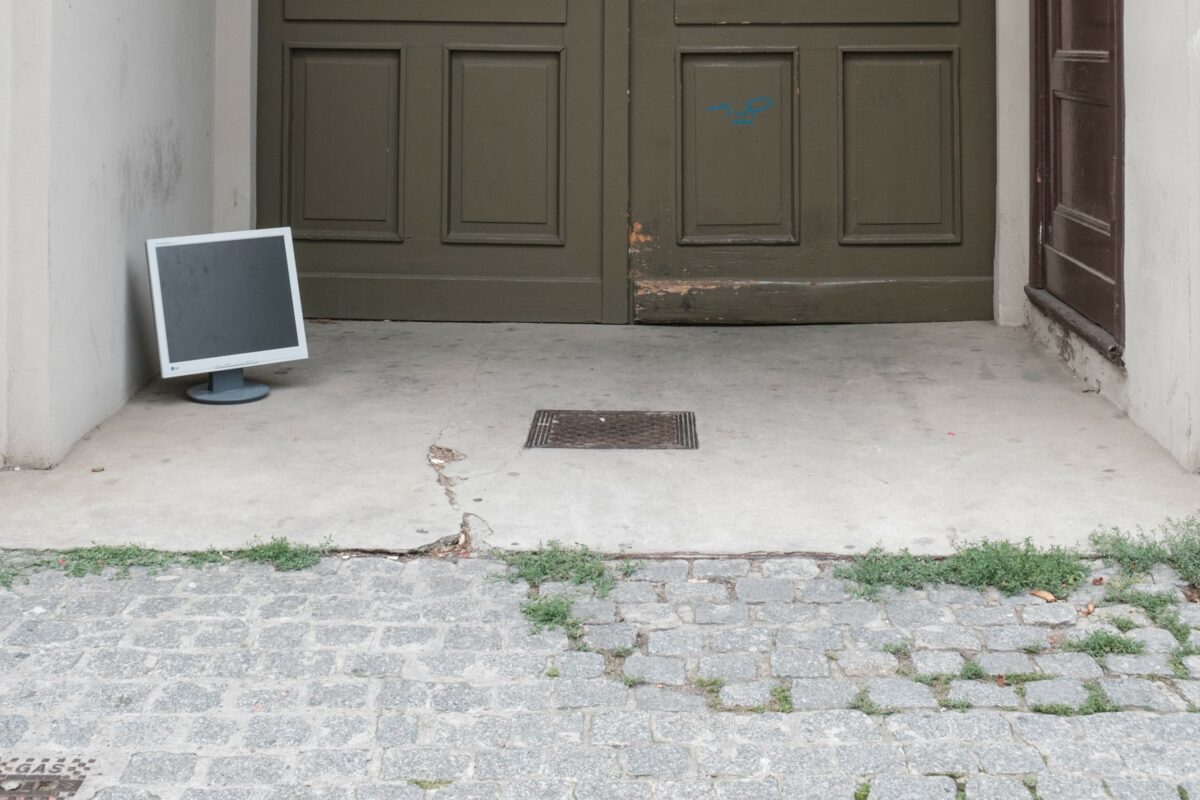
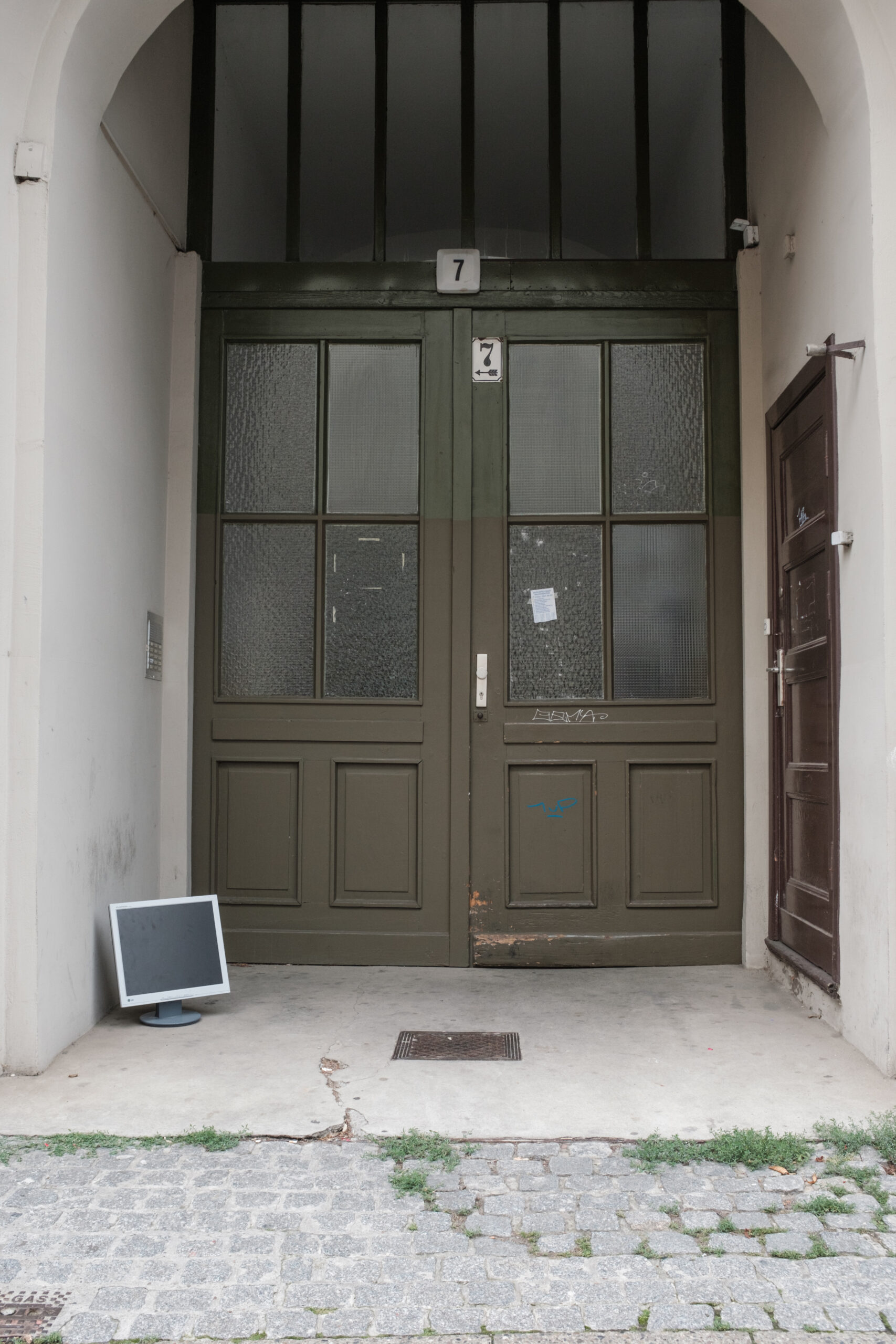
It is, unfortunately, part of the Berlin living experience to have some of the most extremely annoying neighbors, anyone could ever experience. Typically, they are old white Germans (of all genders), who are easily annoyed by the slightest activity or noise you may make in your apartment. They also constantly watch your every move and appoint themselves as morality and order building or community police.
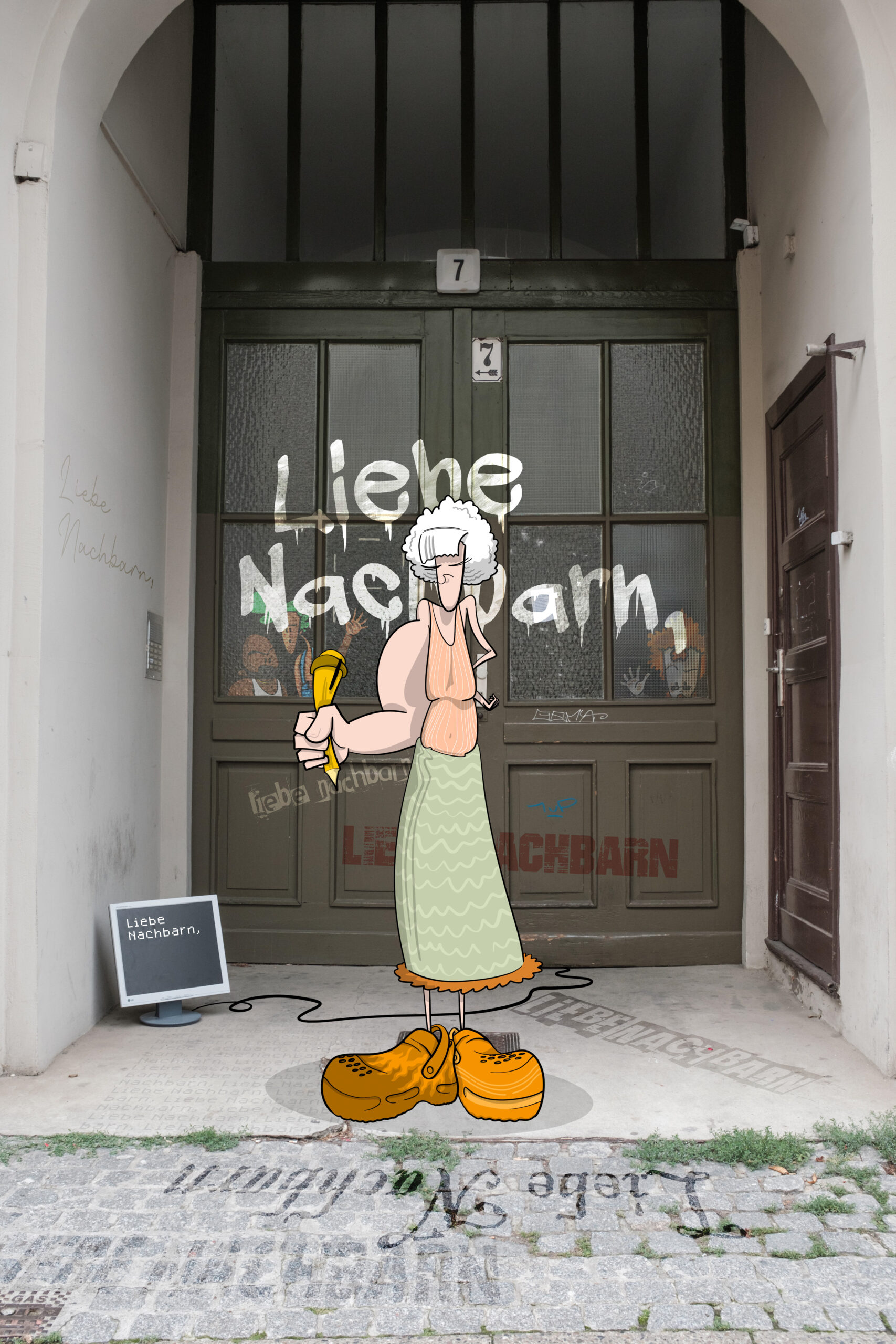
The old annoying German neighbor is so typical of Berlin that even social media platforms invented memes about them.
In this image, the abandoned item is a computer screen.
Titled “Dear Neighbors, …” (“Liebe Nachbarn” in German), we feature what a typical old German female neighbor looks like. She has an exaggerated muscular arm due to the excessive letters of harassment and threats she writes to her neighbors, sometimes to complain about them just walking around in their apartments. She is watchful, generally mean and has the usual passive-aggressive tone in her letters, starting them with the formal “Dear Neighbors, …”.
She is joined by all other annoyingly spying neighbours. You can never miss their frowns.
Image taken in Kreuzberg, Berlin (2023).
After an ostensibly serious magazine attempted to humiliate a Jewish student, he got dozens of hate messages, including death threats
Nathaniel Flakin
01/03/2024
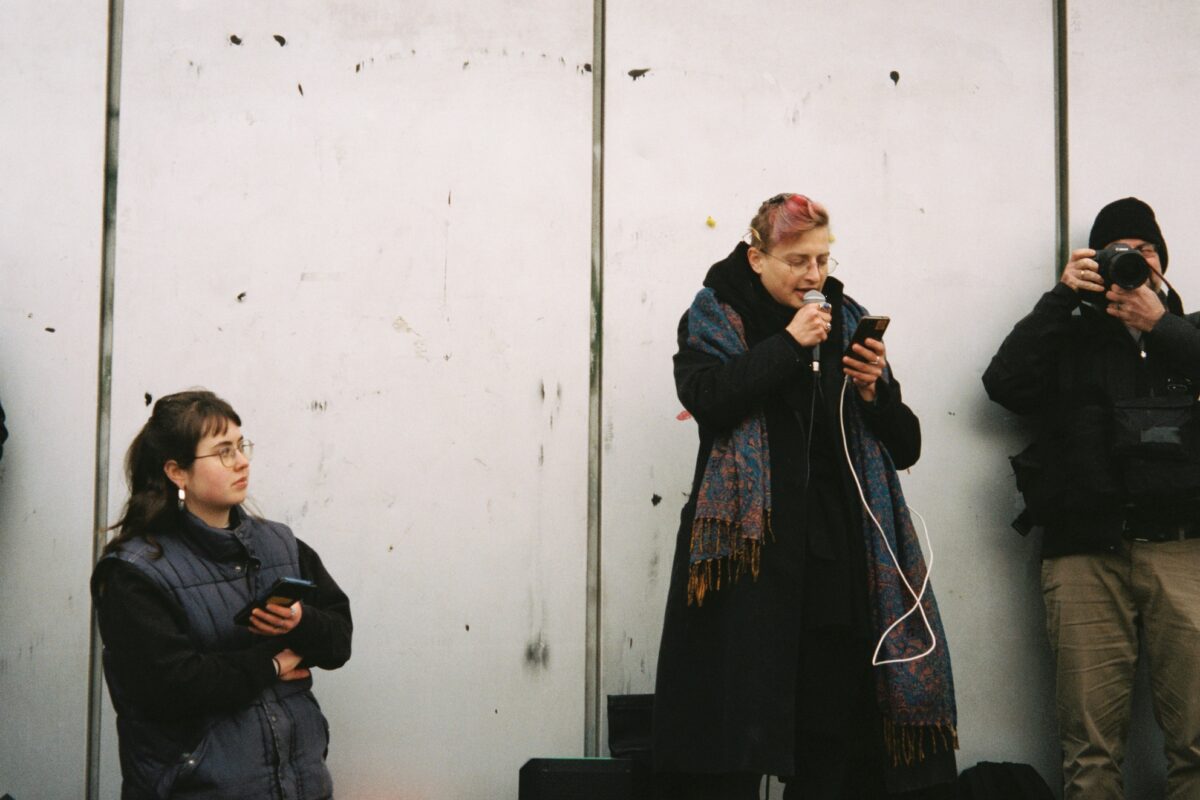
When students at Berlin’s Freie Universität (FU) held a rally for Palestine three weeks ago, there was a media circus: the 85 protestors were surrounded by 85 journalists. There were dozens of often absurdly defamatory reports, but a seven-minute video from Spiegel TV, which has been viewed over 350,000 times, stands out.
Der Spiegel, ostensibly one of Germany’s more serious news publications, deserves some kind of prize for the most deceptive and hateful report of the FU rally. Even the title of the video contains a lie: they call it a “Protest against Jews”, while deliberately ignoring at least three Jewish students who took the microphone to speak against genocide, the Jewish students who co-organized the protest, and the many who attended.
Instead of reporting what happened, Der Spiegel opened their video with a full minute attempting to humiliate a Jewish student. They narrate:
“The moderator calls himself HP Loveshaft, describes himself as trans, and prefers the pronouns ‘it/him’.”
The screen is filled with HP’s Instagram account, zooming in on a picture in a bathing suit. No one else in the video gets their gender or pronouns examined, nor has intimate photos shown.
Although they spent so much time digging into HP’s personal history, the reporters neglect to mention his Jewish heritage — even though he referred to himself as a Jew numerous times and his kippah is clearly visible. They claim he is hostile to mainstream media — while in reality, HP was asking reporters to take a few steps back and make space for students. The rather bombastic style will be familiar to anyone who enjoys drag shows.
By publishing HP’s Instagram handle, Der Spiegel prompted right-wing trolls to send dozens of hateful messages and even death threats to a Jewish student. He was called a “filthy dog” and a “tranny boy”, among many other insults. Several haters expressed their “wish he had never come to Germany” — a desire to make the country judenrein (free of Jews) again. Several messages make their death threats explicit, saying that they hope HP gets “beaten to death on the open street” or that they “will fuck [HP] mentally, financially, socially, on all levels.”
The German media, in demanding unlimited support for the Israeli government, have attacked Jewish activists relentlessly. Der Spiegel‘s transphobic campaign, however, including personal information to encourage harassment, represents a new low.
This portrayal of Jews as lewd, lascivious, and of indistinct gender are typical of antisemitic caricatures — a regular motif of Philipp Rupprecht’s drawings in the Nazi publication Der Stürmer. It’s not clear if Der Spiegel was deliberately referencing these antisemitic clichés, or this is a case of unconscious bias by right-wing reporters.
I’ve reached out to Spiegel TV to ask if they have an “Antisemitism Commissar” — I’ll update this article if they get back.
During the rally on February 8, Udi Raz, a Jewish student at FU and well-known activist for Jewish Voice for Peace, was detained by police for supposedly insulting the university president. Der Spiegel chose to ignore this police intimidation of Jewish students. Instead, they only air claims that right-wing Jewish students are being intimidated by pro-Palestine activists. Although this claim has been repeated for months, the public has not seen a single piece of evidence — no journalist has asked to see a screenshot of a threatening text.
Bizarrely, the only evidence Der Spiegel chooses to share with its viewers comes from a previous incident and clearly shows a pro-Zionist student assaulting Palestine solidarity activists, who refuse to be provoked by the violence and remain peaceful. In a voiceover, a right-wing student explains that the young man committing assault was defending other people — though, for reasons that remain unexplored, this was not caught on video. HP is also easily recognizable in this video as a victim of the violence.
To summarize, Der Spiegel has published unverified claims of intimidation of Jewish students — and in the process, the magazine is shamelessly intimidating Jewish students. HP has had to switch his Instagram to private due to the harassment, and this stoking of racist and transphobic sentiments will affect countless other members of communities already facing terrible violence.
This German magazine claims to defend Jewish students — but only if they align perfectly with German government policy. Jews who dare to criticize a genocide being carried out in their name are made invisible, slandered, and harassed. The dichotomy is disturbing. For Der Spiegel, there are “good Jews” who deserve protection, as long as they are gender-conforming and patriotic towards “their” homeland. “Bad Jews” who question the gender binary and reject Zionist colonialism, in contrast, are fair game. Their very Jewishness is questioned, in a disturbing echo of the claim by Nazi boss Hermann Göring: “I decide who is a Jew!” It is noteworthy that right-wing, non-Jewish Germans who support the Israeli government are regularly asked to speak for the Jewish people — whereas actual Jews who fall out of line are silenced.
While Der Spiegel likes to present itself as a left-liberal magazine with a long history of defending democracy, historians point out that the magazine’s founder, Rudolf Augstein, dedicated considerable resources to rehabilitating former Nazis. As just one example, he invited Rudolf Diels, head of the Gestapo, to write an eight-part series for the magazine whitewashing the record of the Nazi secret police. More recently, Der Spiegel has released dozens of racist covers warning about the dangers of immigrants — often using the same aesthetics from antisemitic posters of a century ago.
In their fervor to defend Israel’s right-wing government, German media know absolutely no boundaries in attacking critical Jews. The family of the Israeli director Yuval Abraham has had to flee their home after a campaign by right-wing media accusing him of antisemitism. Yet this video by Der Spiegel nonetheless stands out in its use of despicable antisemitic stereotypes.
Jonathan Glazer’s film about the Commendant of Auschwitz was released in Germany this week. It brillianty shows the Banality of Evil
Phil Butland
28/02/2024
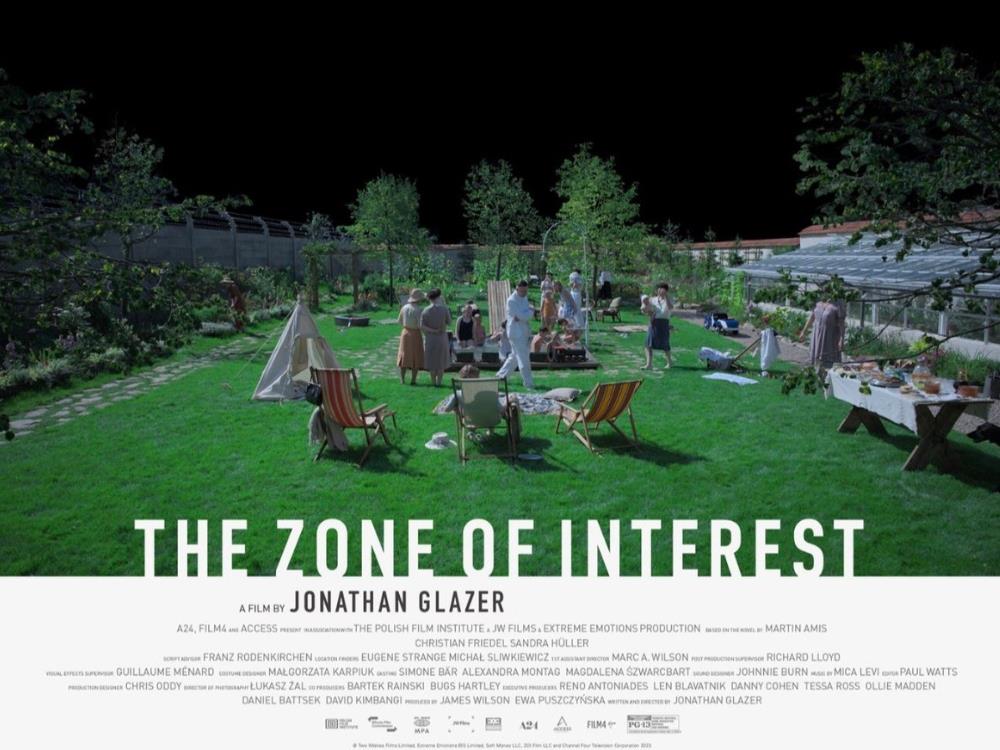
1942, a river in Poland. A family in bathing costumes and summer dresses hover tentatively by the waterside, having a picnic. After a while, the boys go to splash around in the water while the girls collect berries. At the end of an idyllic day, the family return to their sumptuous villa which has its own swimming pool. These scenes of domestic bliss follow a couple of minutes of a blank screen while we listen to discordant music with ever-increasing volume.
Back at the villa, the kids have a birthday present for father Rudolf – a long canoe which can carry up to four people. He fusses about them, saying he’ll have to decide which of them he’ll take out to the lake first. Meanwhile mother Hedwig (played by the woman who, notwithstanding her many other successes is doomed to be known as “Toni Erdmann’s Sandra Hüller”) pootles along in the background doing her chores.
Not that Hedwig has much to do. The house is full of maids and men who clean everything, including Rudolf’s boots. The family carry out a mundane bourgeois lifestyle, spending as much time as they can in their beautiful garden and large conservatory. At the end of the garden, there is a stone wall behind which you can see a large brick chimney from which black smoke occasionally billows. At the end of each eventless day, Rudolf and Hedwig retire to their separate twin beds.
Occasionally, very occasionally, we leave the villa, mainly to accompany Rudolf to work. You see, Rudolf is the Commandant in charge of Auschwitz Concentration Camp. Even here, his life seems to be full of dull meetings where SS officers discuss the most effective forms of deportation and execution with exacting meticulousness. Anyone who has ever cracked a joke about over-officious Germans will find affirmation on screen.
At home. Rudolf spends his time with the kids reading them bedtime stories or taking them out horseback riding. One afternoon, they go out fishing and canoeing together. Their fun is broken when Rudolf notices ash and bone floating on the water – presumably the remains of former camp inmates. With his usual speed and efficiency, he orders the kids out of the water and back home, where he ensures that they are thoroughly washed down.
A serpent enters Eden when Rudolf is ordered back to Berlin. On its face, this is a promotion – as a reward for his efficiency, he has been put in charge of “dealing with” Hungarian Jews. Although Hedwig is proud of her husband, she is aghast that this may destroy everything that they have built together. Haven’t they been trying since they were 17 to create a peaceful home in the country, just like the one they have now?
The most incredible part of the film is the unobtrusive background sounds – an occasional shriek, the odd gunshot, a dog barking, the incessant rumbling of a furnace. They are always there, but somehow we get used to them, in the way that the Höss family is able to separate the horror which is happening on the other side of the wall from their daily lives. Hedwig, for instance, does not come over as a polemicizing Nazi. She doesn’t seem to think much about politics at all.
It is difficult to watch The Zone of Interest without thinking of Hannah Arendt’s phrase “the banality of evil”, which feels like a cliché but fits just so well here. And yet for all the numbing conventionality of her everyday life, Hedwig clearly benefits from the evil being carried out on the other side of the fence. We see her trying on a fur coat pillaged from Jewish prisoners. She finds some lipstick left by the previous owner in one of the pockets. In the next scene, she is putting on some lippy.
Later, Hedwig and her friends joke about the benefits they gain from their unpaid housemaids. In other scenes, the power imbalance between mistress and maid is palpable. Hedwig’s maids know that she just has to say the word, and they will end up on the other side of the wall. Hedwig knows this too, and for all her bourgeois respectability, she is not afraid of using the horrific situation to impose her power over her underlings.
When the Holocaust memorial was built in Berlin, there was serious debate about whether it was possible to depict the Holocaust. Theodor Adorno’s quote “No poetry after Auschwitz” was dusted off. I think that architect Peter Eisenman took the correct decision to design an abstract series of blocks, as it is just not possible to visually represent the immensity of the horrors of the industrial genocide of millions of Jews, trade unionists, Roma and Sinti people and many more.
Director Jonathan Glazer has a similar problem with The Zone of Interest. Whatever he shows cannot be as shocking as the real thing. So it is a brave, but in my opinion, effective, move on his part not to show any of the terror, apart from a coda filmed in the modern day Holocaust museum where we see cleaners passing glass display cases full of suitcases and shoes robbed from people who were to be murdered in Auschwitz.
Most of the film is shot from a distance, which is perfectly understandable, as we should avoid any semblance of identification with the main characters. At the same time, Glazer has said that his intention was to show “our similarities with the perpetrators”. By this, I understand him to mean that The Zone of Interest is not just a film about something which happened in history, but real political developments in the world today.
At the recent BAFTA awards, The Zone of Interest won the award for best “foreign-language” film. In his acceptance speech, producer James Wilson talked about “the walls we choose not to look behind”, saying, to applause: “those walls aren’t new, from before or during or since the Holocaust, and it seems stark right now that we should care about innocent people being killed in Gaza or Yemen in the same way we think about innocent people being killed in Mariupol or in Israel.”
It is important that The Zone of Interest was filmed in German, for more than one reason. Firstly, for authenticity. It makes a difference whether we hear people speaking in the language of the protagonists instead of English with a stereotypical “Tscherman” accent. But also, at a time when Germany is both seeing a rise of the AfD and a civil society which is reluctant to accept that Never Again must also apply to Palestinians, this is a film which Germany needs to engage with.
The Zone of Interest is an incredible accomplishment, but is it any good? It’s certainly not fun to watch. There is also no happy redemptive ending. No-one has a Damascene conversion and discovers the barbarity of their actions. Which is absolutely fitting, as the film is recording actual history, not a story which we would like to tell ourselves to ignore the brutality of everyday life (or the financiers who were quite happy to enable Nazism to thrive in Germany).
The film is not entirely without hope. Everything is filmed in natural light, the one exception being a single scene filmed using thermal imaging. A girl – she is maybe 14 – gets on her bicycle, and – avoiding the passing security patrols – takes apples to leave near the gravel quarries where the camp inmates are forced to work. The girl is clearly Polish, living nearby while being a member of the partisan forces. Her actions show that humanity has not entirely deserted the area.
There are some films which are great to watch, but if you’ve seen them once, that’s all you need to see. This is not one of those films. In fact, knowing what is going to happen increases your appreciation of The Zone of Interest. It is hard work, a film which makes you think, and is not afraid to make you suffer. It would not necessarily be my preferred Oscar winner, but it is in a quite different league to superficial baubles like Oppenheimer.
This review originally appeared on the cinephil Berliner Film Blog
A documentary investigating Germany’s war on Palestinian voices
Like other Western nations, Germany has funded the war in Gaza, increasing its military budget and abetting Israel with material and political support as they continue to kill tens of thousands of Palestinian civilians.
However, what is unique about Germany is the sheer level of repression towards Palestinians and their supporters. Protests have been banned, even chants and slogans have been banned, all in the name of protecting Israel’s national security.
This is such a high priority for the German government that they call it their “reason of state.”
The German media closely reflects this agenda, reporting only the Israeli version of events in Gaza, and grossly misrepresenting or completely ignoring the Palestinian perspective.
It is about time this changed. The purpose of this documentary film project is to highlight the Palestinian voice that has been erased from the media for decades. We have already completed 70% of the filming for the first episode and drafted an editing script.
By funding this independent project, we will be able to investigate, explain, and reveal Germany’s support for Israel, its impact on Europe’s largest Palestinian community, and how those affected are fighting back.
After producing the first episode, we hope to extend the project into a series or a feature-length film focusing on how Germany’s pervasive pro-Israel bias has infiltrated society. This will include Germany’s classification of Israel as their “Reason of State,” Germany’s anti-BDS resolution, the silencing of students, artists, and academics within Germany’s higher education institutions, and Germany’s anti-Palestinian response to the Israel-Hamas war.
Fundraising goals
Further funds will allow us to produce more episodes or a feature-length version of the film for wider distribution.
About the team
Hebh Jamal is a Palestinian journalist living in Germany. Her reporting on the repression of Palestinians in Germany has appeared on Al Jazeera, Middle East Eye, Mondoweiss, and 972 Magazine.
Tom Wills is a British journalist living in Germany. He has researched and produced documentaries for international broadcasters including Al Jazeera and the BBC. His reporting on the repression of Palestine solidarity in Germany has appeared in Middle East Eye, Neues Deutschland, and Junge Welt.
Allocation of funds
You can make your donation here.